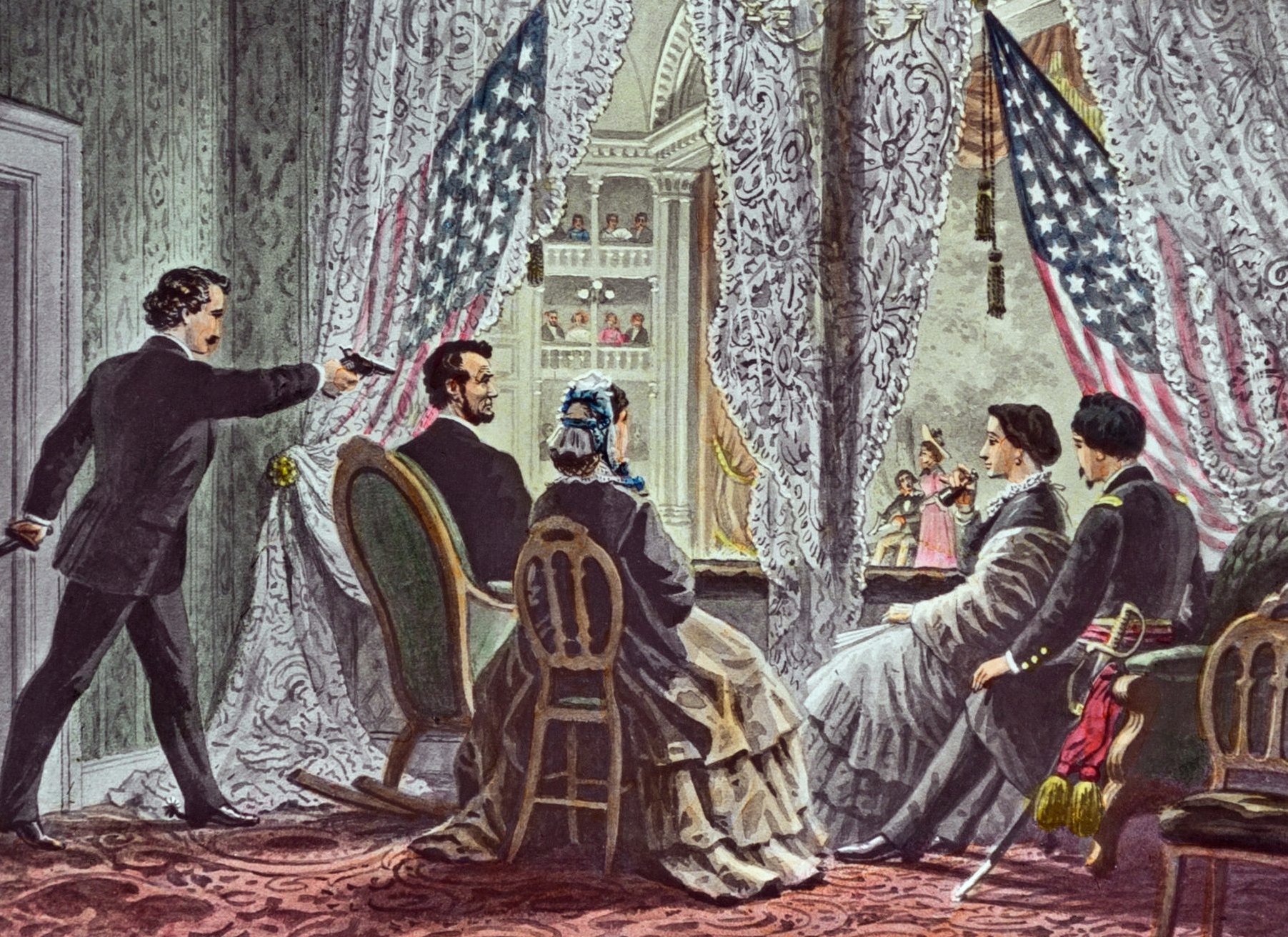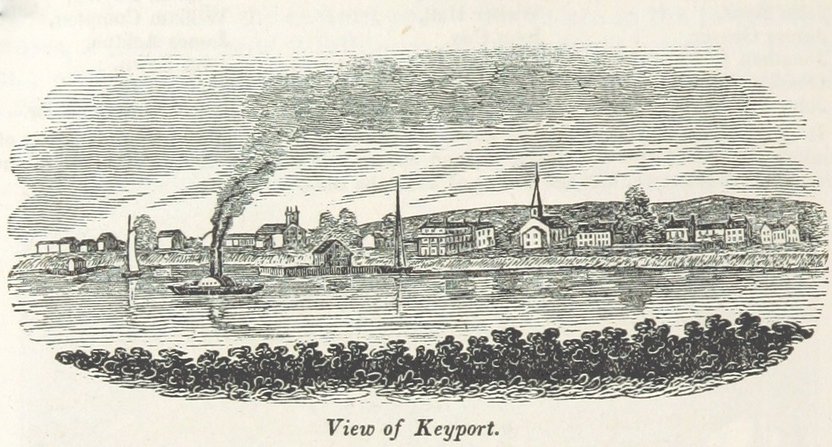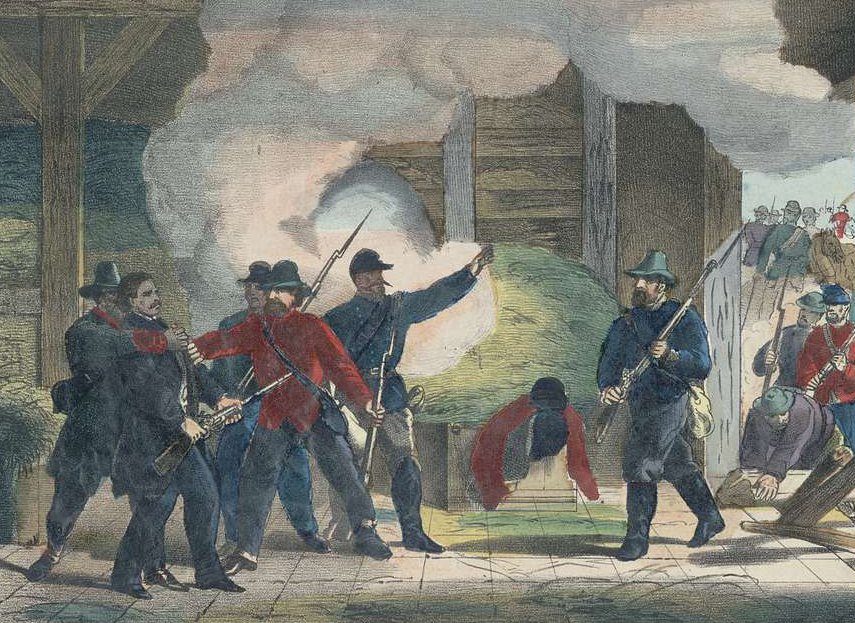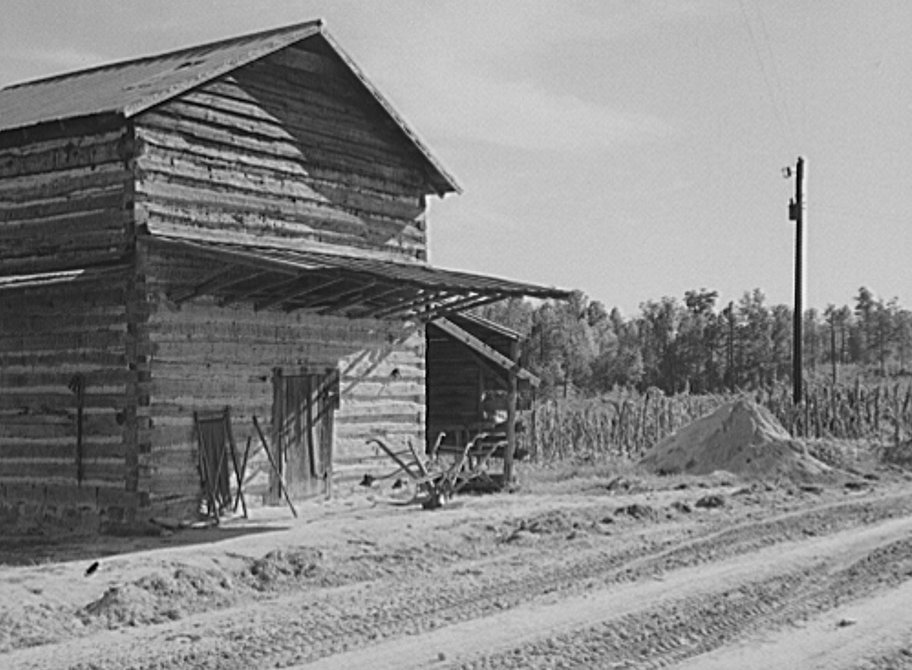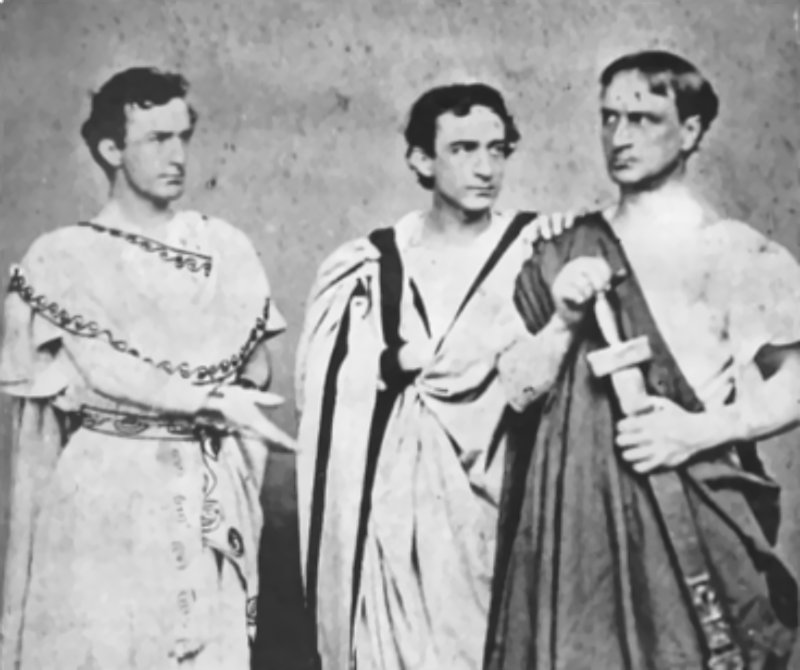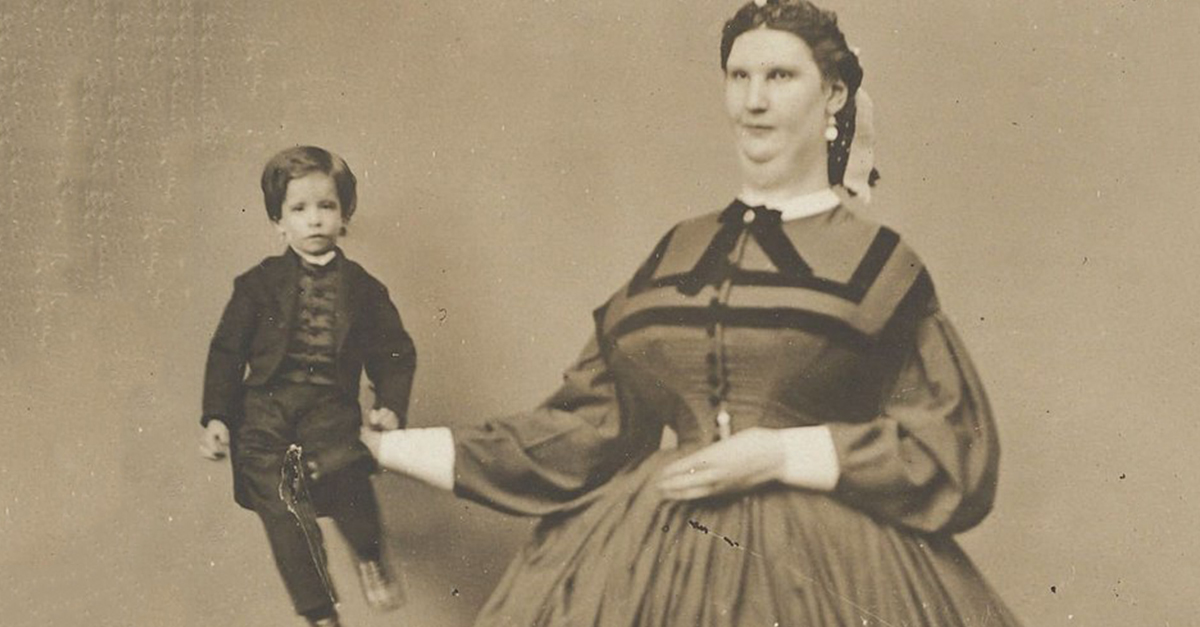His name was Thomas or Boston Corbett, but people refer to him differently. Famous for his eccentric behavior and religious fanaticism, Corbett was the maddest hatter of all time…until he carved his name in the history books for the most scandalous reason.
1. He Had A Unique Occupation
Thomas H Corbett was born in 1832 to a family who moved quite a lot. His birthplace was London, but after some traveling, the Corbett family finally settled in New York. Corbett grew up fast because he had to. He was a working man, and his business of choice was being a hatter—also known as a milliner.
He loved being a milliner, but there was something disturbing about his job.
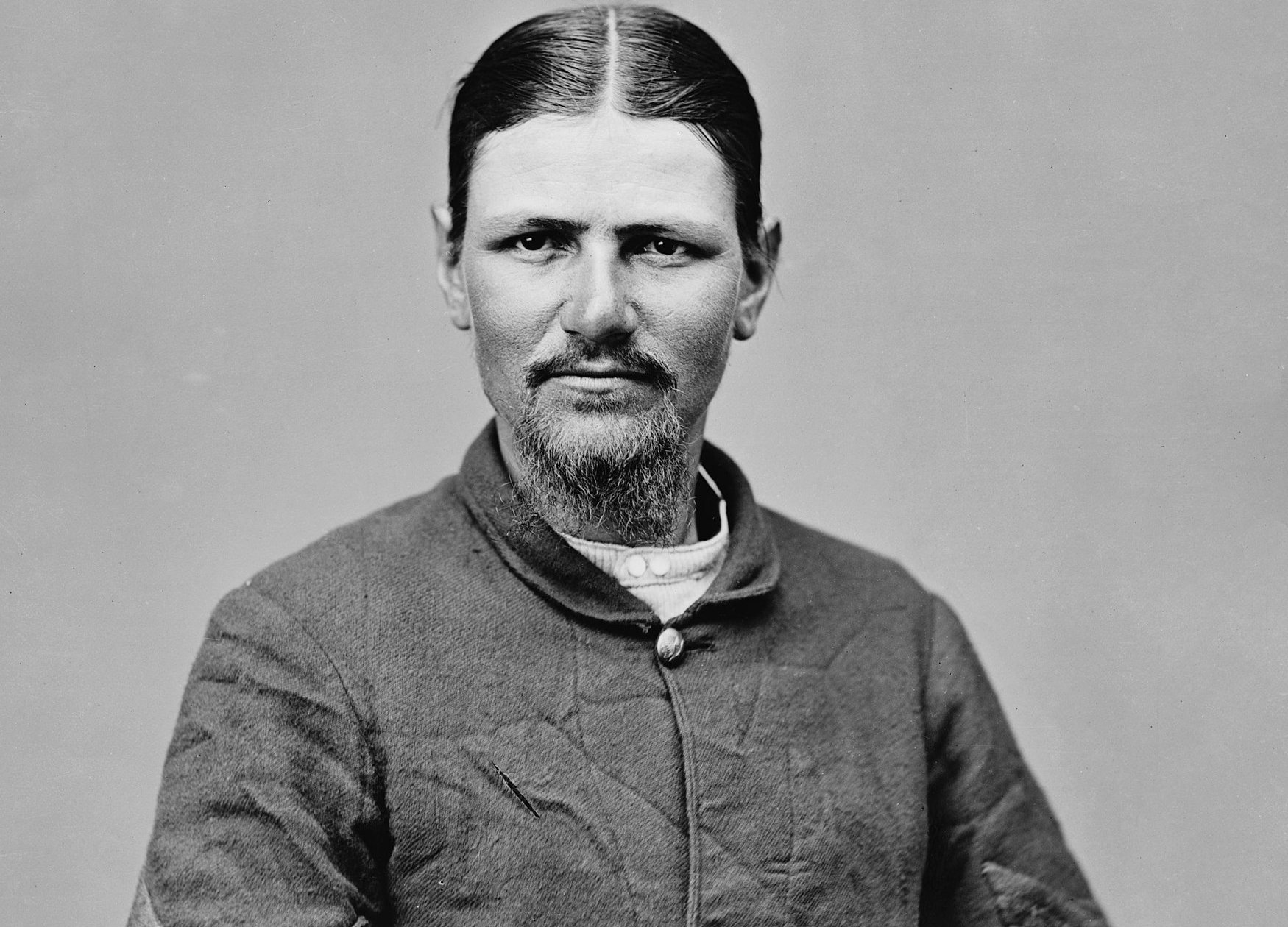 Mathew Benjamin Brady, Wikimedia Commons
Mathew Benjamin Brady, Wikimedia Commons
2. He Got More Eccentric By The Day
In producing hats, Corbett used a process involving some dangerous fumes. Alarmingly, excessive exposure to these fumes caused hallucinations. Historians argue that Corbett’s eccentric behavior was due to this psychosis, called “hatter's shakes”. As if mental instability wasn’t painful enough, there was even more trauma waiting in the wings.
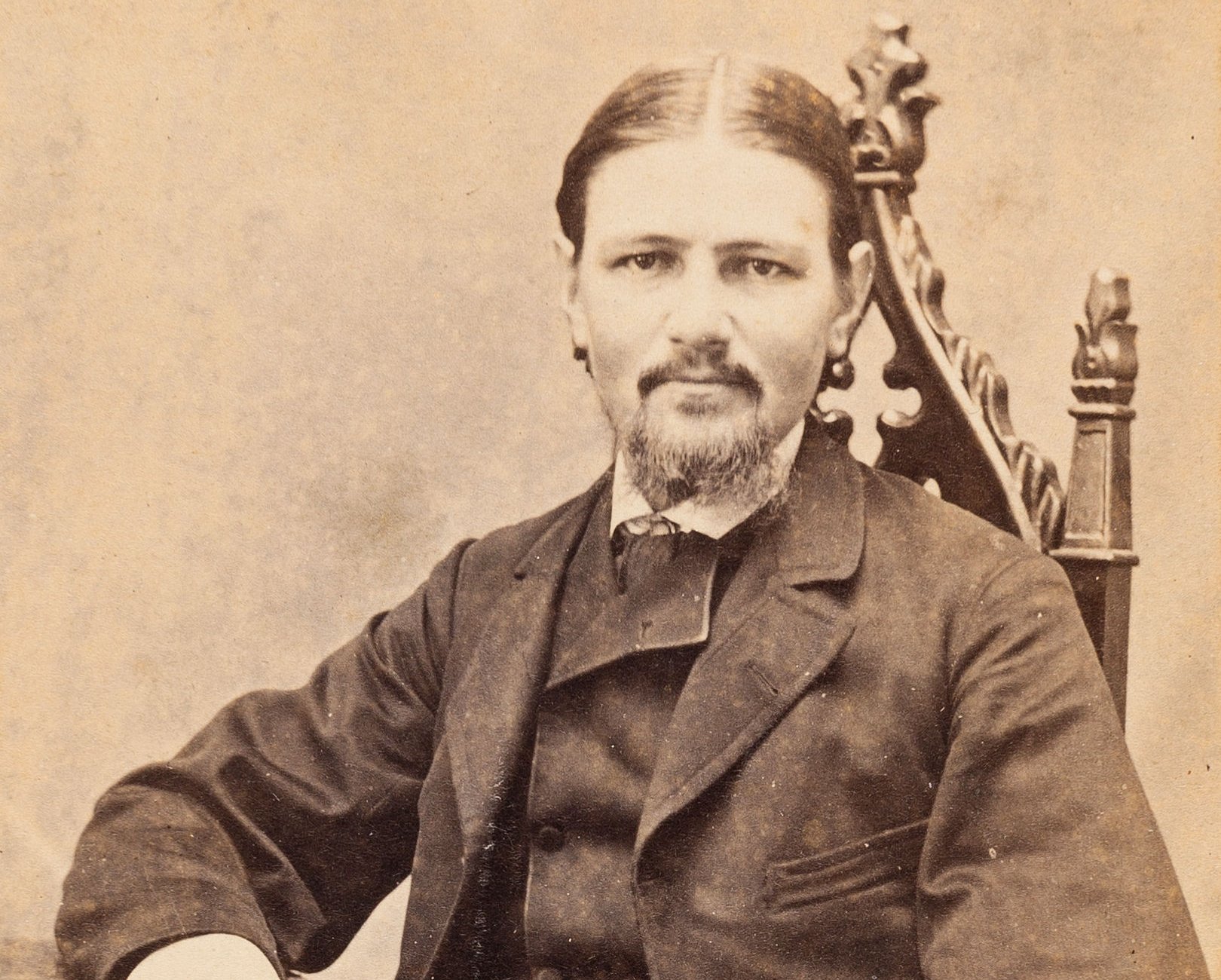 Unattributed, Wikimedia Commons
Unattributed, Wikimedia Commons
3. He Lost Everything
Despite his risky profession, Corbett found love—and a chance of having his own family. It was a fast love and fast marriage—and unfortunately, it had a fast end. Tragically, his wife passed while giving birth to his child. In fact, both his wife and baby daughter passed away, leaving Corbett all by himself.
It was very hard on him, and he didn’t have the power to deal with it.
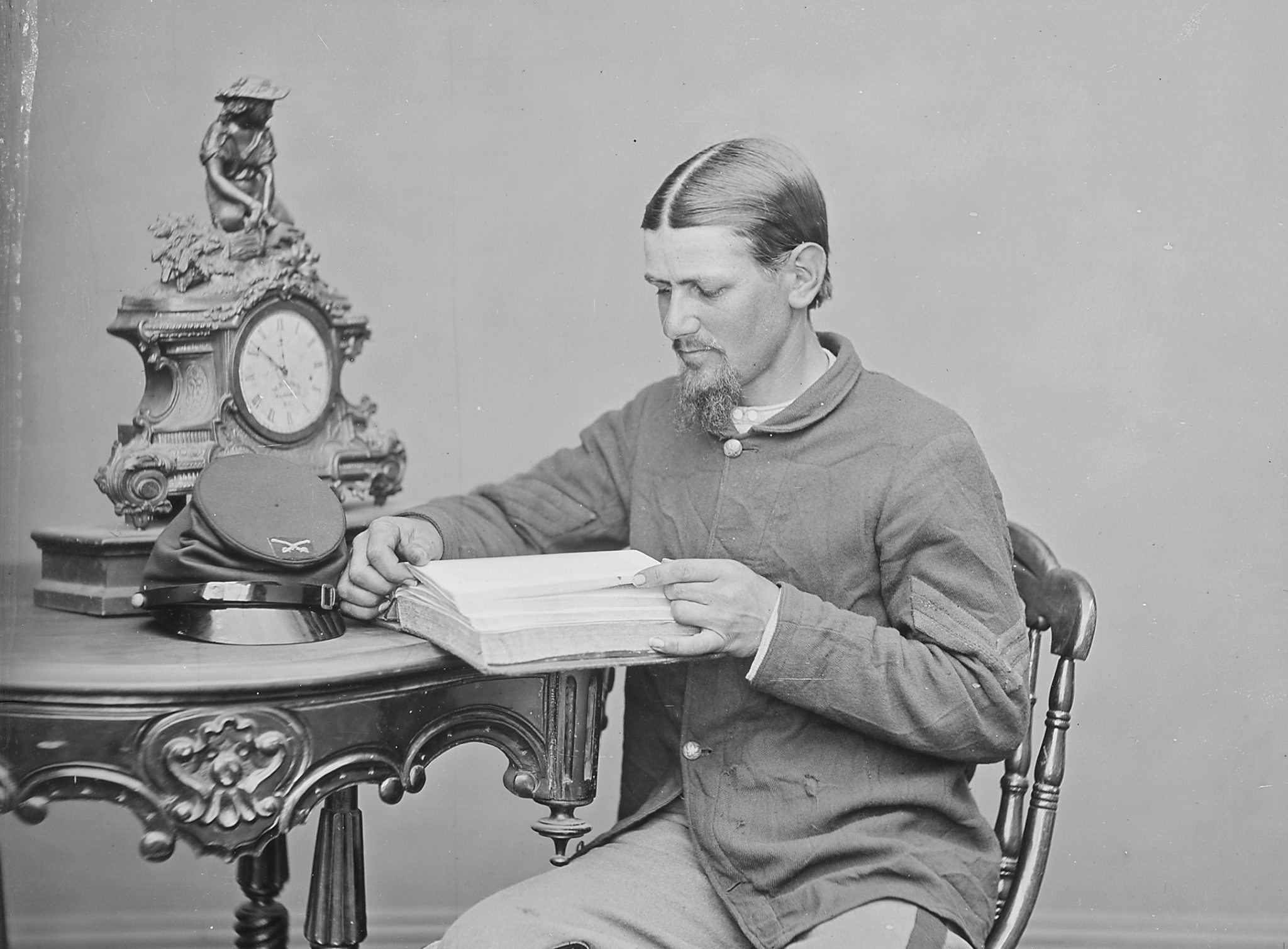 Mathew Benjamin Brady, Wikimedia Commons
Mathew Benjamin Brady, Wikimedia Commons
4. He Was Homeless
After the awful incident, Corbett left New York. He moved to Boston to start a new life, yet this new life was terribly depressing. He tried to find relief at the bottom of a bottle—and when that failed, he looked for more. Consequently, he lost his job, his health, and even his home. He was a desperate man until he made a life-altering discovery.
 Robert Havell, Wikimedia Commons
Robert Havell, Wikimedia Commons
5. He Had An Epiphany
One night on the streets of Boston, the intoxicated Corbett came across a street preacher. They began talking, and this preacher’s message deeply touched Corbett. There and then, he decided to join the Methodist Episcopal Church—and turn his life around. No to bottles, and yes to religion. This was his wake-up call.
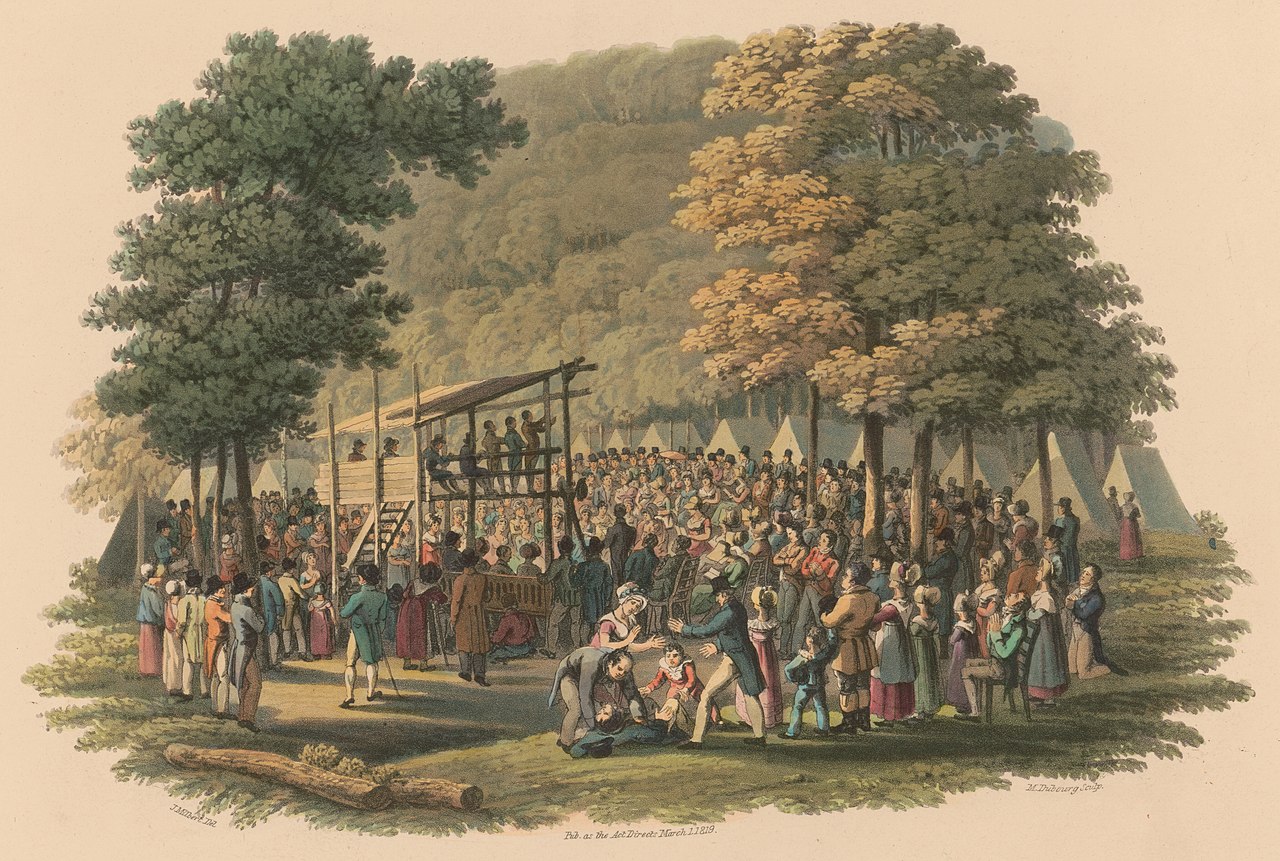 Dubourg, M., Jacques Gérard, 1766-1840, Wikimedia Commons
Dubourg, M., Jacques Gérard, 1766-1840, Wikimedia Commons
6. He Underwent A Radical Change
First, Corbett was baptized. Second, he grew his hair long. Third, he wanted to change his name—he wanted the name “Boston” to pay tribute to the city where the preacher converted him. From there on out, he was a new man who attended meetings with such discipline and enthusiasm that he earned another name—"The Glory to God Man".
Unfortunately, this wasn't a good thing.
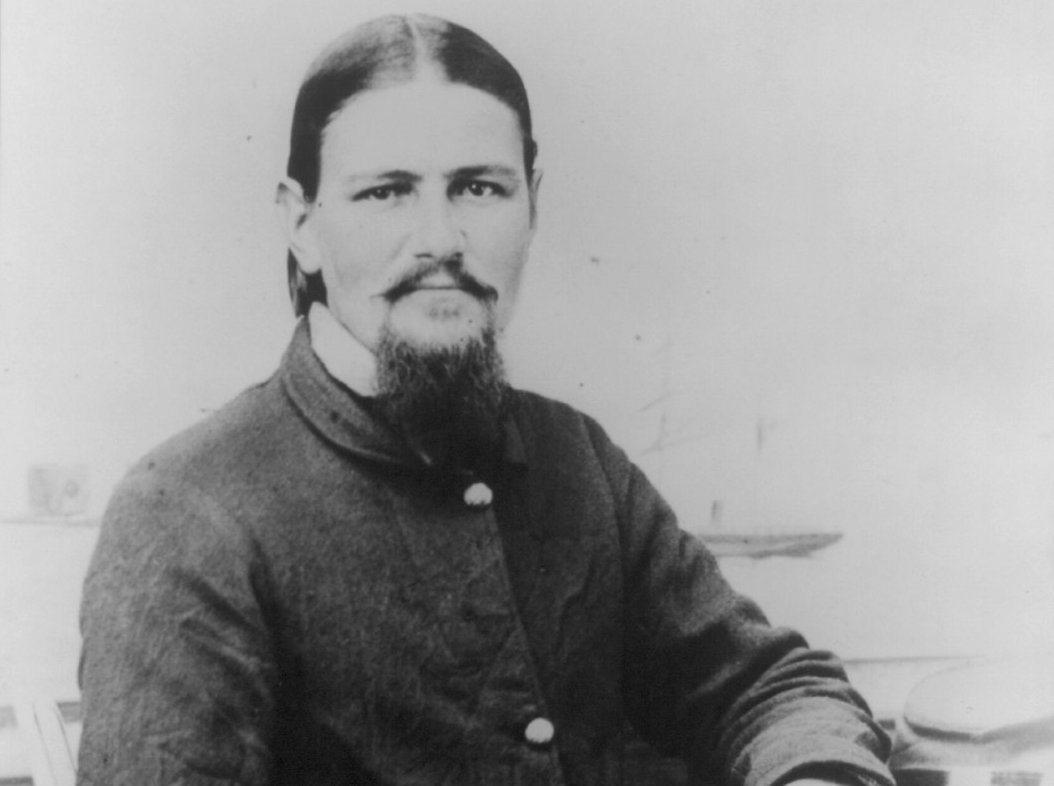 Miscellaneous Items in High Demand, PPOC, Library of Congres, Wikimedia Commons
Miscellaneous Items in High Demand, PPOC, Library of Congres, Wikimedia Commons
7. People Knew He Was Bizarre
He might have gotten rid of his old personality, but Boston Corbett's fragile, fume-exposed brain was still with him. Those who knew him began to realize that Corbett was an unstable character. His religious fanaticism, his untimely prayers, and his singing gave him a reputation of being a “local eccentric”.
His over-the-top behavior was acceptable...until it became threatening.
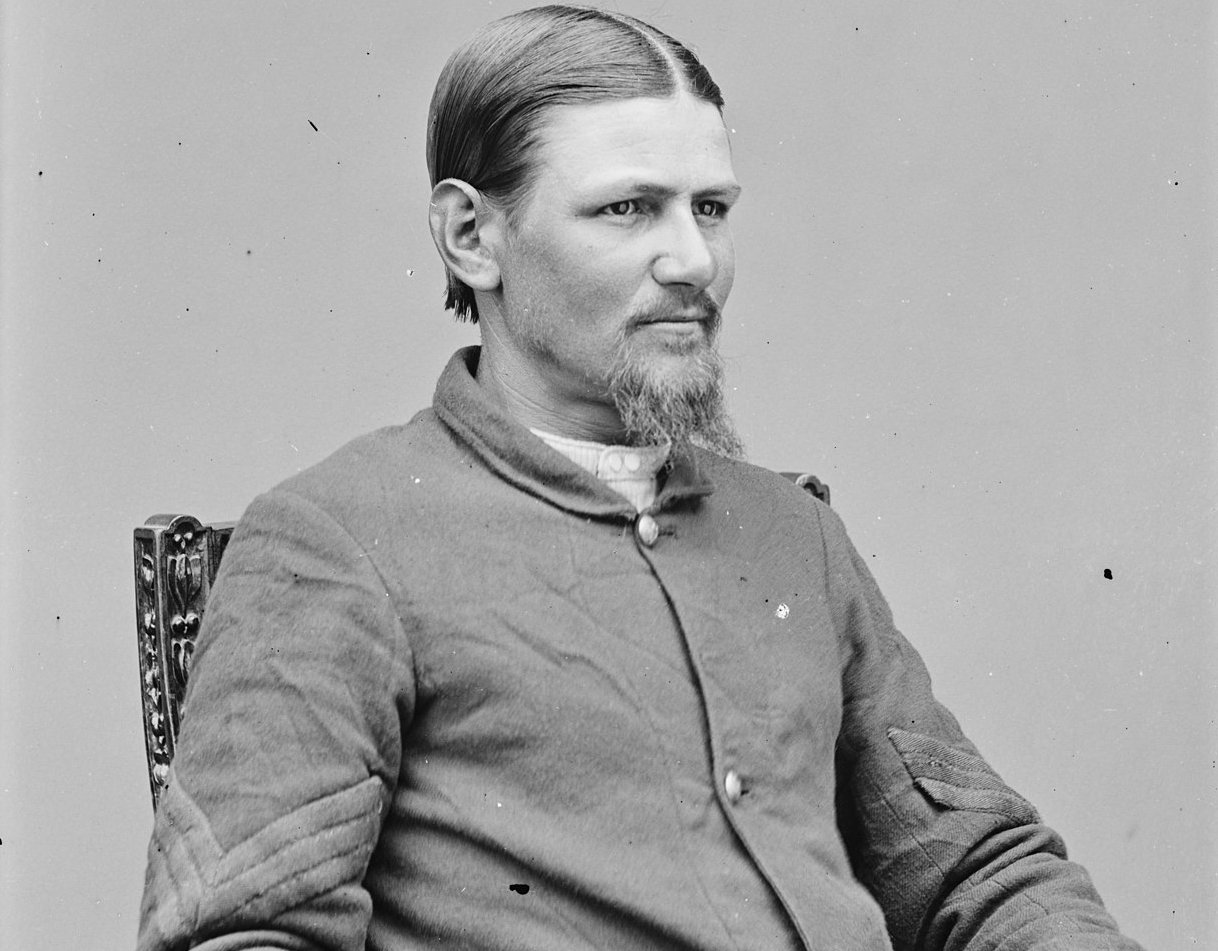 Civil War Glass Negatives, Wikimedia Commons
Civil War Glass Negatives, Wikimedia Commons
8. He Took It Too Far
In 1858, Corbett did something unforgettable and alarming. One summer while he was walking home, two ladies offered him an intimate service for some cash. Corbett was disturbed, so he immediately went home. He knew that he had avoided temptation, but he mistakenly thought that the only way to be truly disciplined and holy was to castrate himself—with a pair of scissors. Oh, but it gets worse.
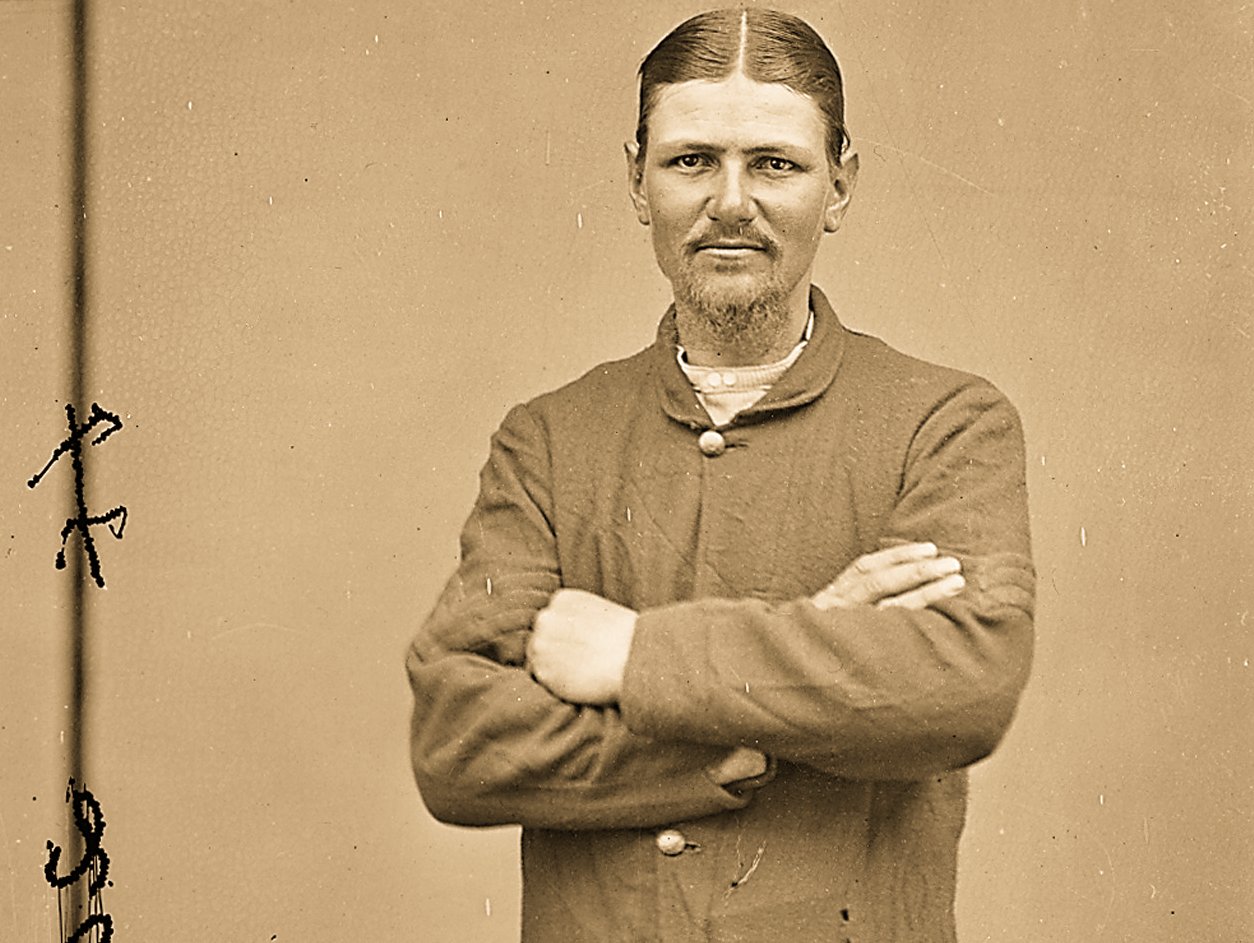 Mathew Benjamin Brady, Wikimedia Commons
Mathew Benjamin Brady, Wikimedia Commons
9. He Didn’t Seek Medical Help
If you think Corbett's castration was psychotic, he went even further. After performing the medical procedure on himself, Corbett didn’t rush to the hospital. His priorities were different: He prayed, ate dinner, and even attended a prayer meeting. After all that, he finally sought medical help.
It seemed that Corbett had finally gone off the deep end, but fate had an even wilder plan in store for him.
 George Hodan, Public Domain Pictures
George Hodan, Public Domain Pictures

Sign up to our newsletter.
History’s most fascinating stories and darkest secrets, delivered to your inbox daily. Making distraction rewarding since 2017.
10. He Changed Vocations
Somehow, Boston Corbett’s religious fanaticism guided him to enlist. In 1861, he enlisted in the Northern Army. As usual, his remarks concerning this new adventure were bizarre. He kept telling people in his church that when he came across an enemy, he would say, “God have mercy on your souls'—then pop them off”.
But there was one important detail that Corbett forgot.
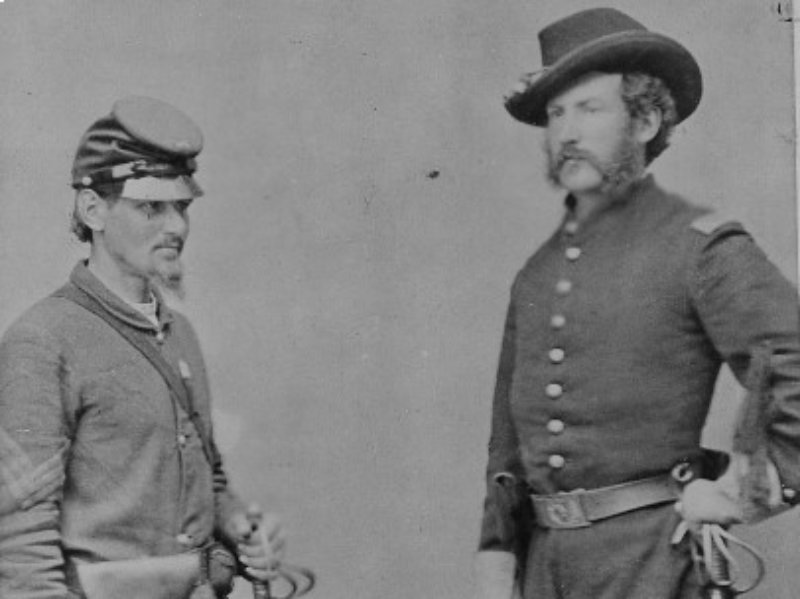 Mathew Benjamin Brady, Wikimedia Commons
Mathew Benjamin Brady, Wikimedia Commons
11. He Was A Troublemaker
One thing Corbett overlooked was that the army was not the place to display his eccentric behavior. He was supposed to follow orders, not his pious impulses. Of course, he couldn't behave—and he often condemned officers for not following his version of God’s word. And on one unforgettable occasion, he crossed the line.
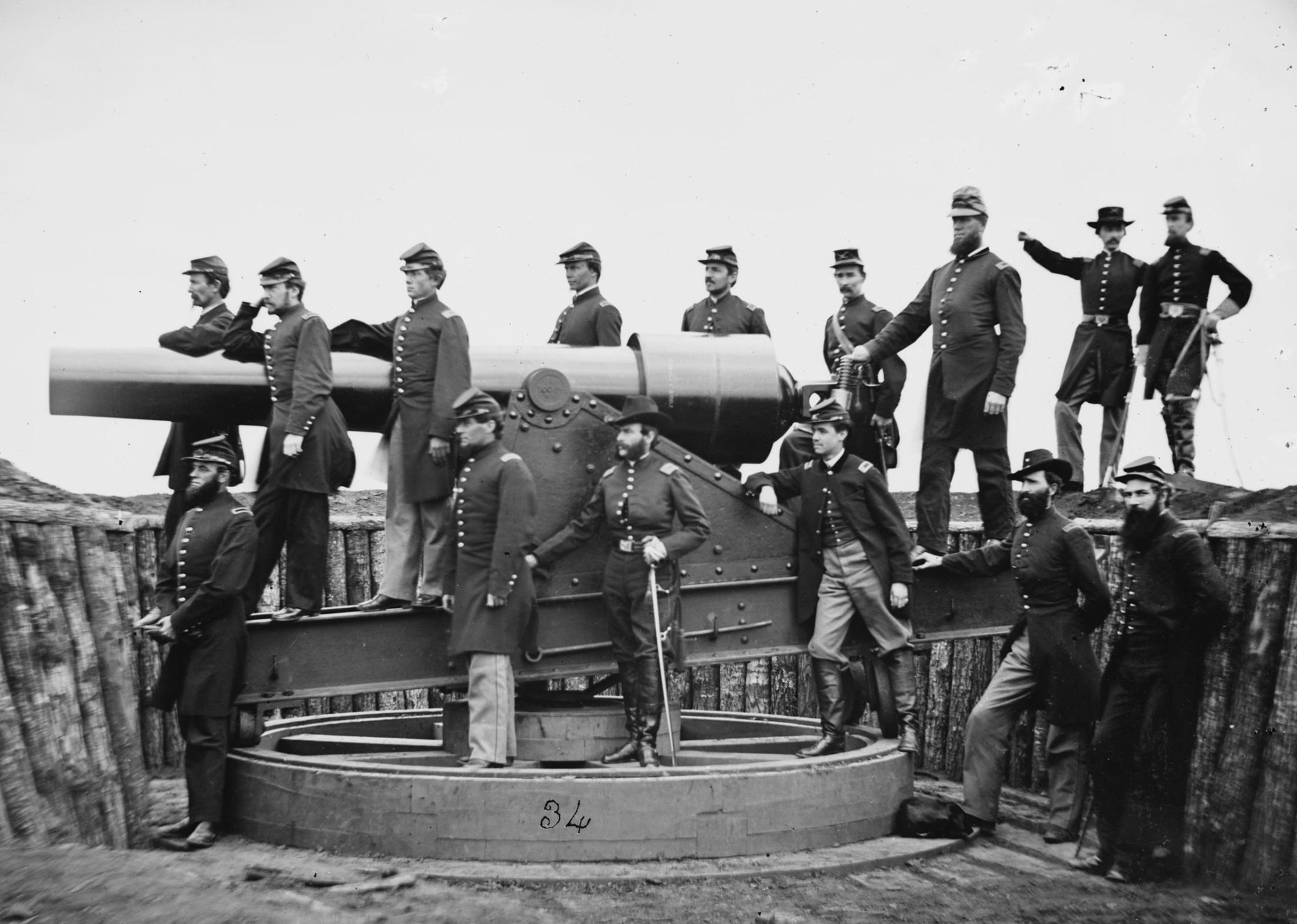 Library of Congress, Wikimedia Commons
Library of Congress, Wikimedia Commons
12. He Talked Back To A Colonel
One day, Corbett’s superior—Colonel Daniel Butterfield—kept using profane language and taking the Lord’s name in vain. Corbett snapped and verbally reprimanded him. Not surprisingly, this infuriated the colonel, and Corbett found himself in a guardhouse. The colonel waited for an apology, but Corbett had other plans.
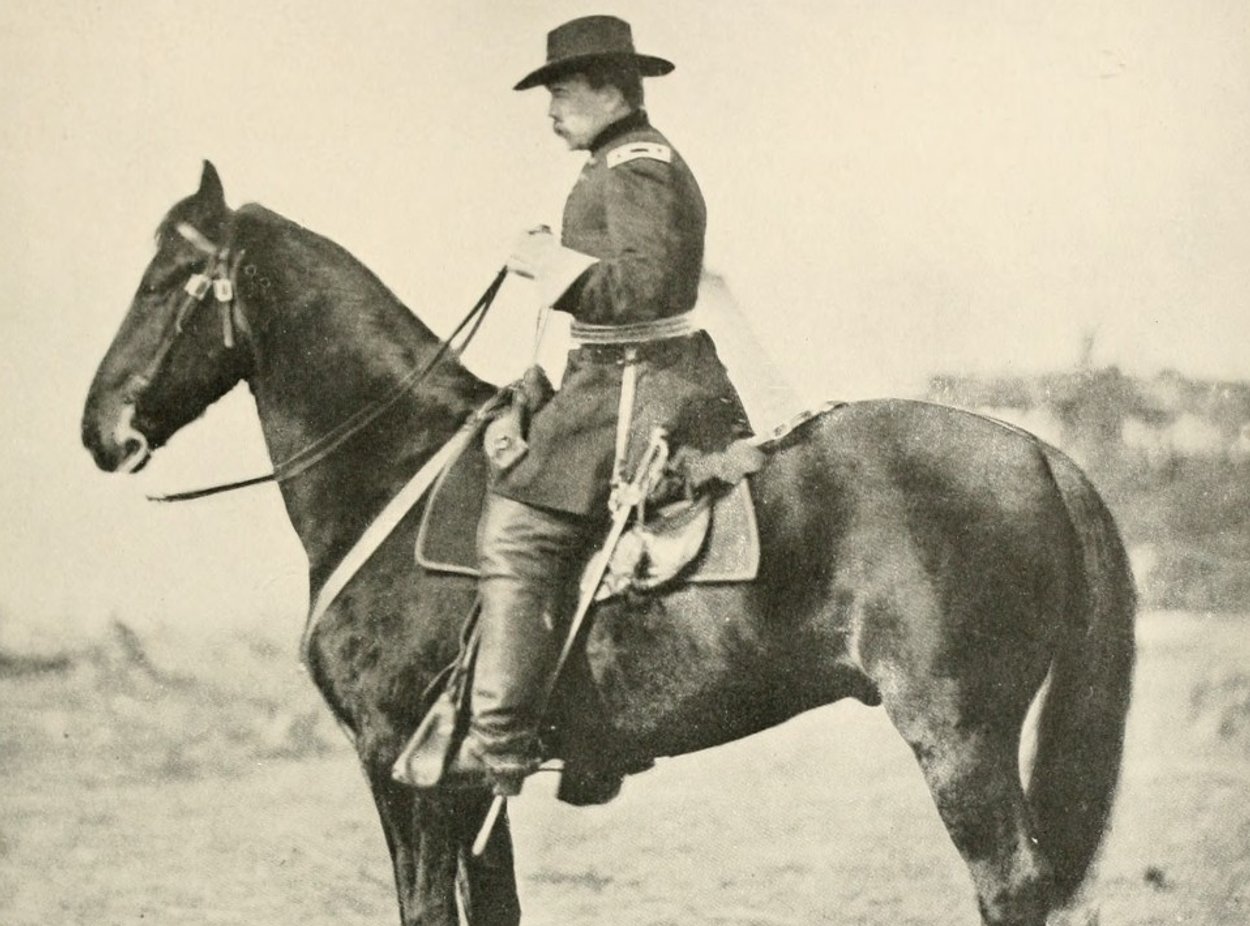 Unidentified photographer, Wikimedia Commons
Unidentified photographer, Wikimedia Commons
13. He Was İnsubordinate
Corbett had told Butterfield, “Colonel, don’t you know you are breaking God’s law?” The officers expected a sincere apology—but they certainly didn't realize who they were messing with. Corbett's lips were sealed. Instead, he preferred singing hymns—in a very loud manner.
In fact, he sang non-stop, which drove everyone mad. Especially the colonel.
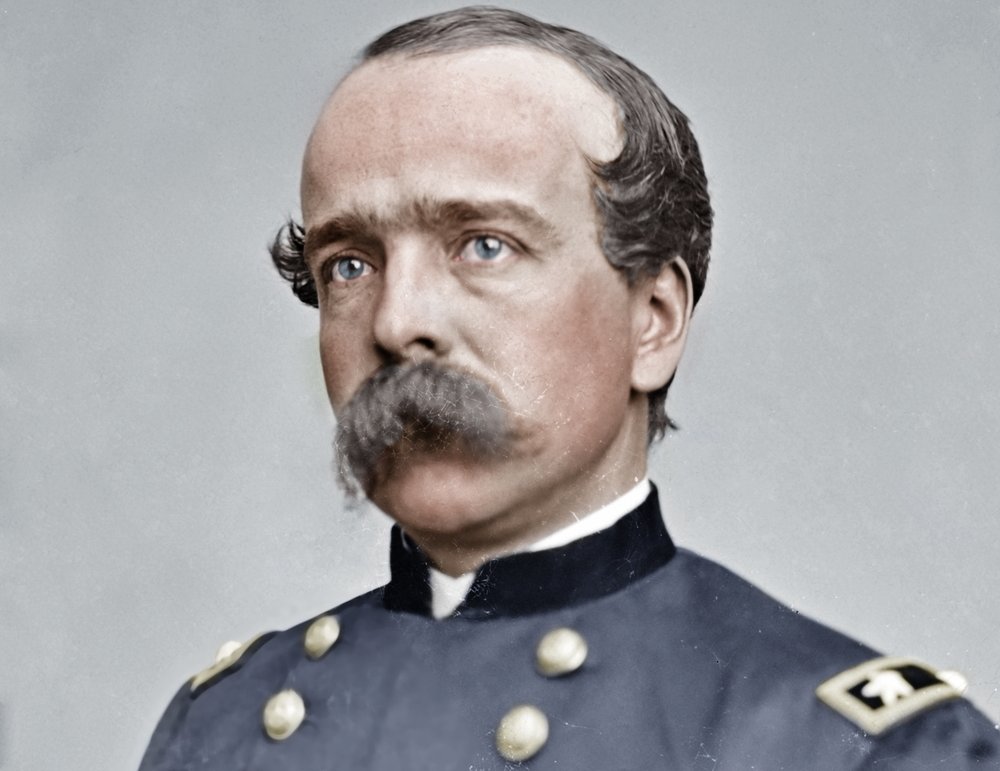 Daniel Hass, CC BY-SA 4.0, Wikimedia Commons
Daniel Hass, CC BY-SA 4.0, Wikimedia Commons
14. He Had One Last Change
Due to his insubordination and disrespect, the colonel delivered Boston Corbett one last message. Butterfield ordered Corbett to stop singing or suffer the consequences. I don’t know if the religious fanatic misunderstood the message or simply rebelled, but he kept singing at the top of his lungs.
This had horrifying repercussions.
15. He Almost Lost His Life
The verdict was clear—Boston Corbett would pay for his insubordination with his life. Then the strangest thing happened. Corbett kept framing his hesitance for an apology as, “No, I have only offended the colonel, while the colonel has offended God, and I shall never ask the colonel’s pardon until he himself has asked pardon of God”.
The colonel, on the other hand, was exhausted and decided to spare his life. Corbett was free to go home, but he wasn't about to do that.
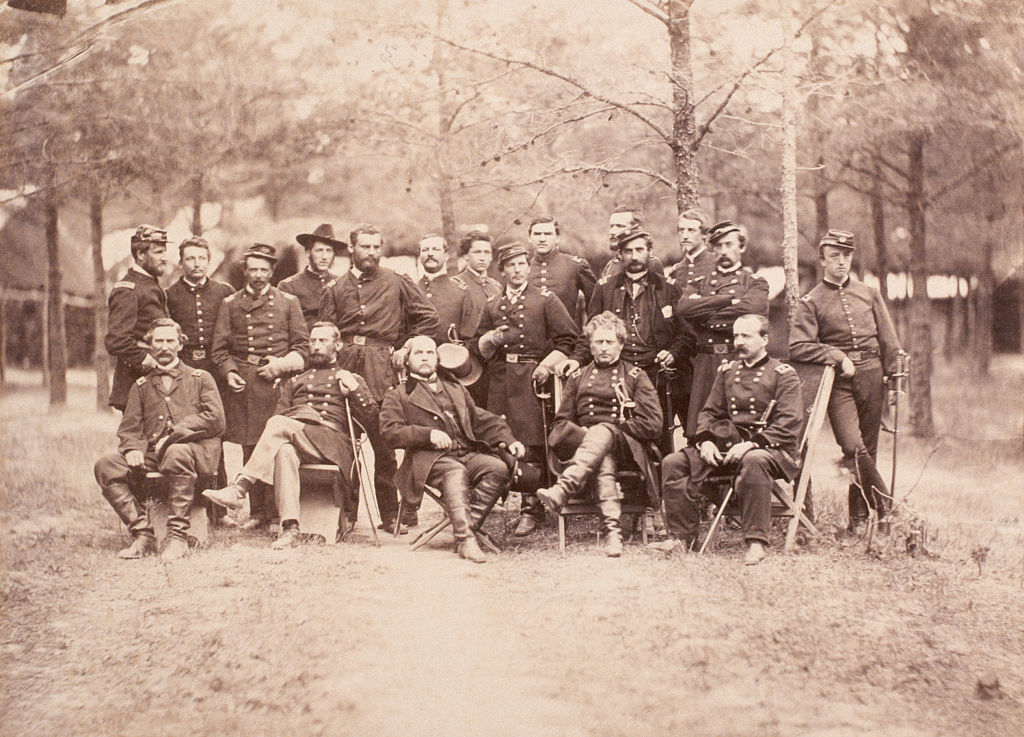 Historical, Getty Images
Historical, Getty Images
16. He Re-Enlisted
Corbett wasn’t ready to say goodbye to his career and his uniform. Therefore, he went the extra mile. He re-enlisted, but this time his duty was far more hazardous and gruesome. He was off to fight in the Battle of Culpepper—but nobody thought he would come back. This was that type of duty.
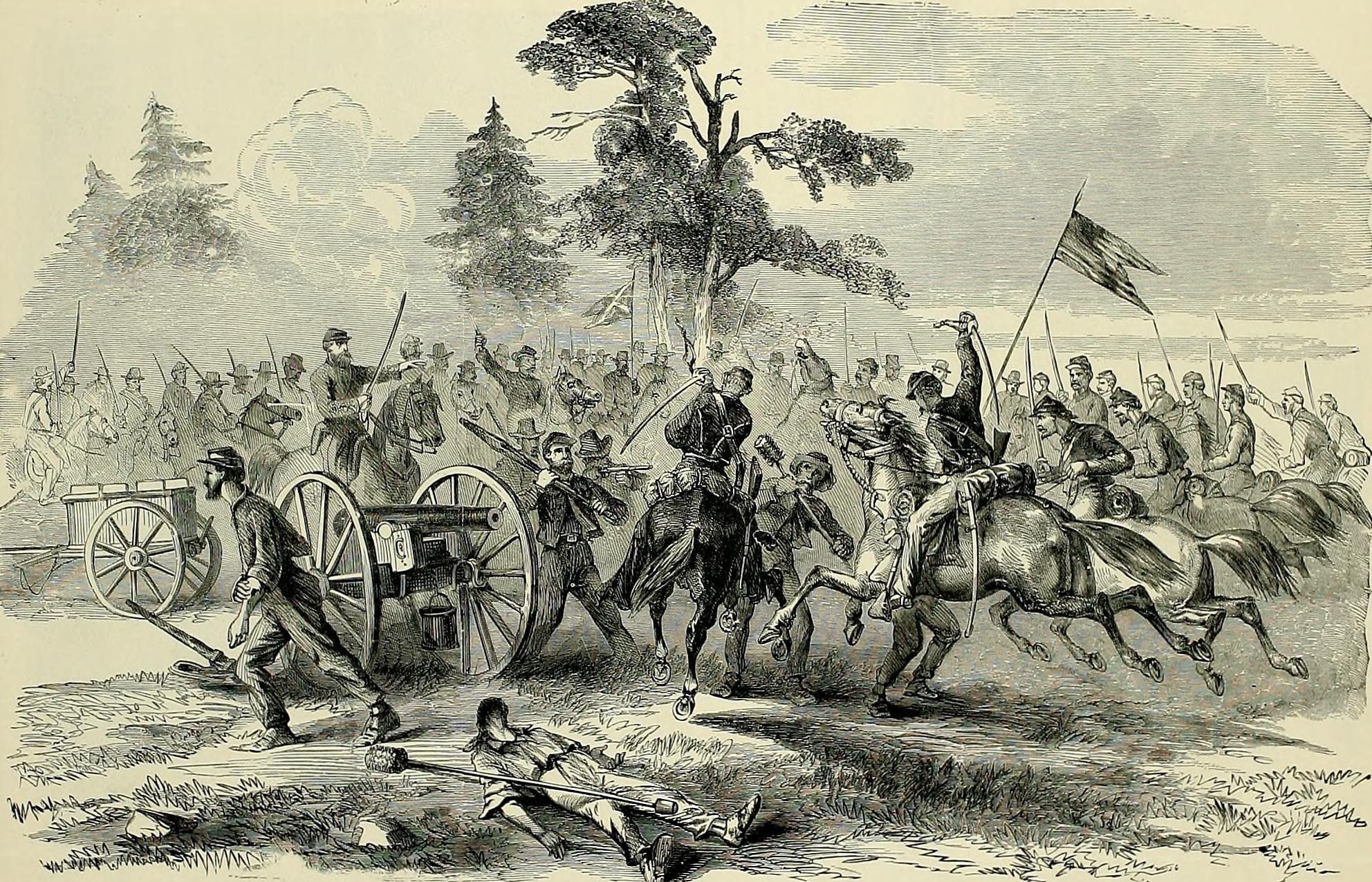 Internet Archive Book Images, Wikimedia Commons
Internet Archive Book Images, Wikimedia Commons
17. He Had His Heroic Moment
Defying all expectations, Corbett put on a historic show at the Battle of Culpepper. He stood against a whole team of raiders. Reportedly, he “almost single-handedly held off a detachment”. Of course, he was praying for them while he was taking their lives, as he told them he would.
Unfortunately, his triumph was short-lived.
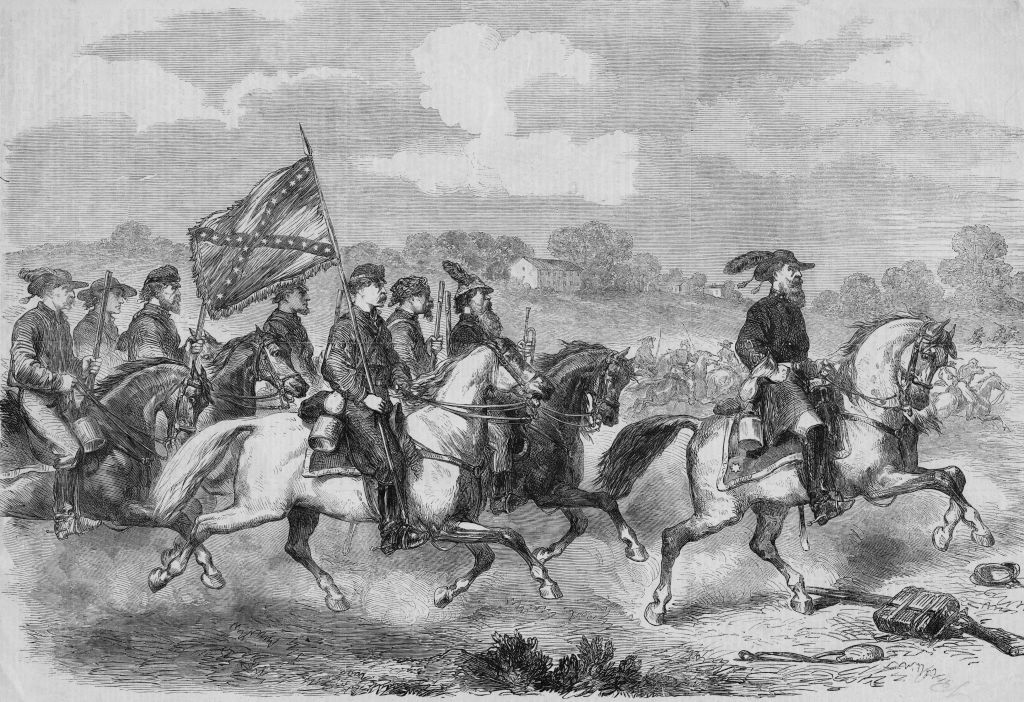 Illustrated London News, Getty Images
Illustrated London News, Getty Images
18. The Enemy Caught Him
After Boston Corbett had his moment, the enemy had theirs: They captured him. However, they still acknowledged his bravery and praised him. His twisted prize? Well, it was the infamous Andersonville penitentiary. This place had a reputation for its awful treatment and diseases. Corbett’s limits were about to be tested again.
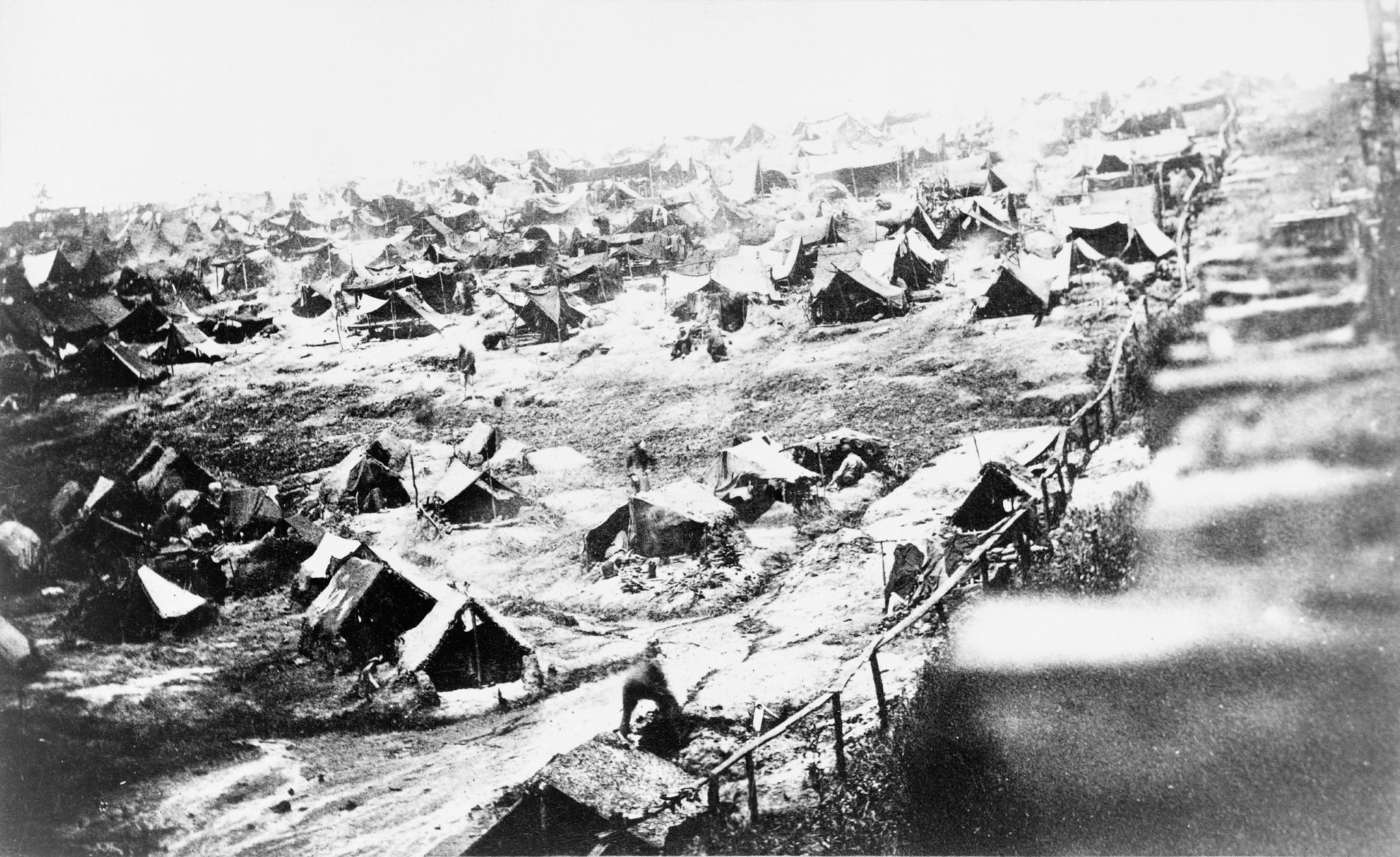 Civil War Photograph Collection (Library of Congress), Wikimedia Commons
Civil War Photograph Collection (Library of Congress), Wikimedia Commons
19. He Disturbed People
There is no debate that Corbett was a big personality. He was hard to be around, especially when he was behind bars. The commander of the facility—Henry Wirtz—became utterly sick of his acts, especially his religious fanaticism. Finally, he decided to get rid of Corbett.
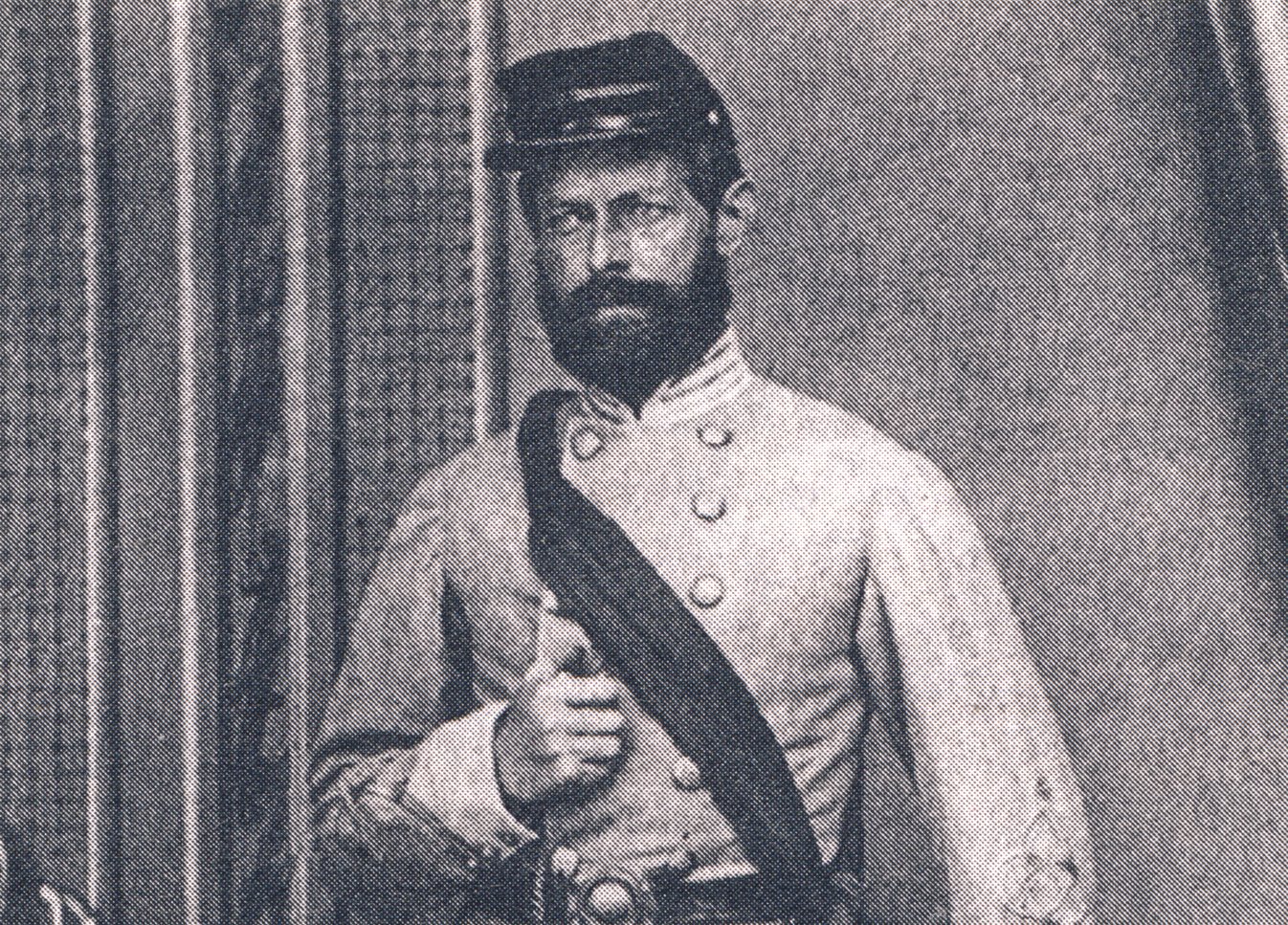 Unknown (scanned and uploaded by Хрюша, 2011-09-15), Wikimedia Commons
Unknown (scanned and uploaded by Хрюша, 2011-09-15), Wikimedia Commons
20. He Ran Away
While Wirtz put his plans in motion, so did Corbett. He orchestrated an escape plan—and it shockingly worked. Sadly, his plan had some extreme flaws. Soon after he escaped, the enemies found him. Strangely, they didn’t take his life—and he went crawling back to Andersonville.
He continued to live there in misery for five months…until November 1864.
 Bubba73 at en.wikipedia, CC BY-SA 3.0, Wikimedia Commons
Bubba73 at en.wikipedia, CC BY-SA 3.0, Wikimedia Commons
21. He Was Extremely Ill
In 1864, Boston Corbett's superiors proposed an exchange. Upon his release, they took him to the hospital since he was in a pretty rough condition. The medical staff treated him for scurvy and malnutrition. After a while, he got better—and after that, he got a new uniform. Not only had he made a triumphant return, but he also got promoted.
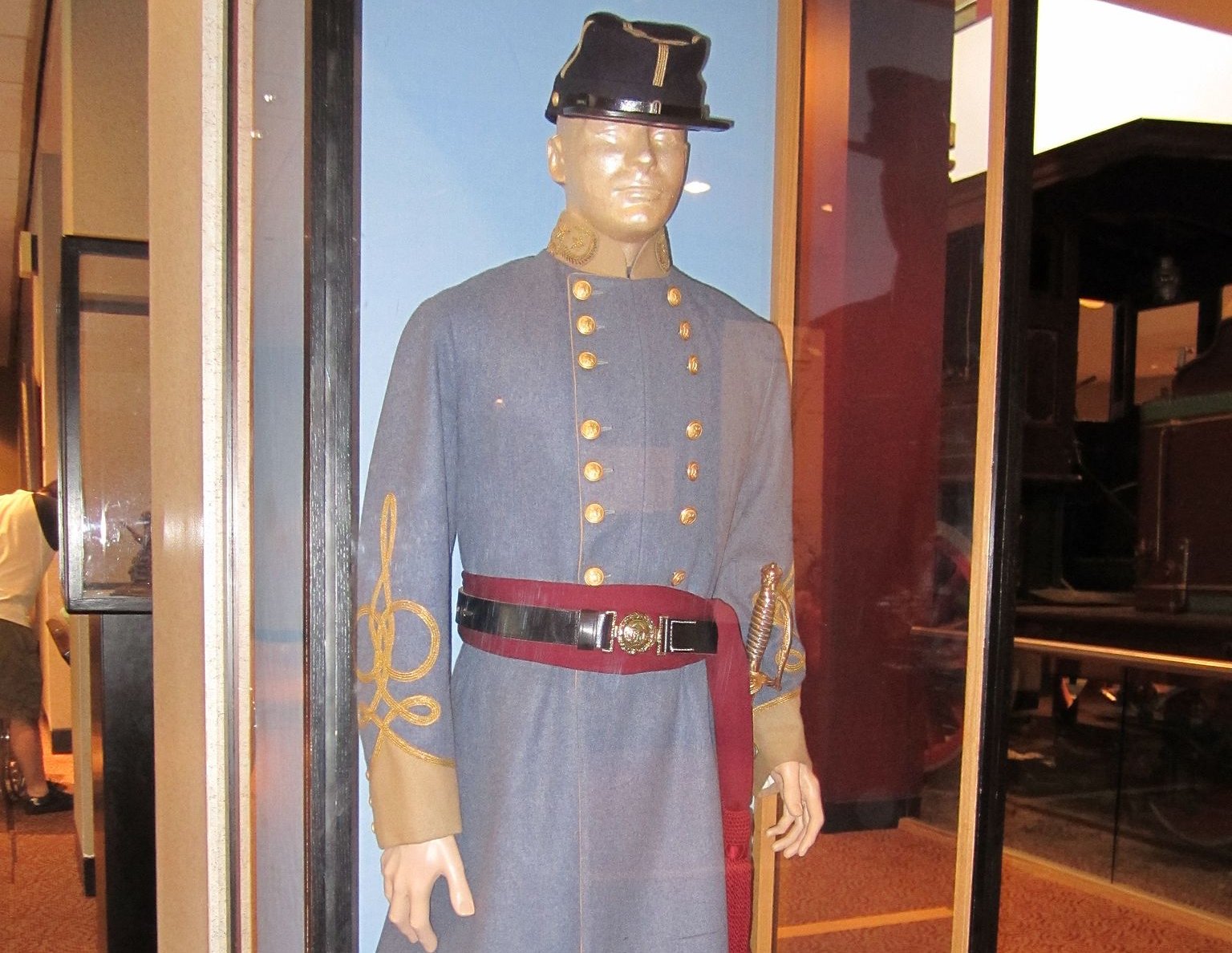 London looks, CC BY 2., Wikimedia Commons
London looks, CC BY 2., Wikimedia Commons
22. He Had A New Duty
As of April 1865, people called Boston Corbett “sergeant”. But with the new title came new responsibilities. This new duty was unlike anything else—Corbett’s regiment had a duty to apprehend John Wilkes Booth—the man who took the life of President Abraham Lincoln. Not wasting a second, Corbett and his team got a lead in two days.
23. He Chased A Villain
On April 26th, Corbett and his men found themselves surrounding a barn in Virginia. Reportedly, Booth and one of his partners—David Herold—were there. Shortly after, Herold surrendered. However, it was Booth they really wanted. Unfortunately, the assassin wasn't going down without a fight. So Corbett took action.
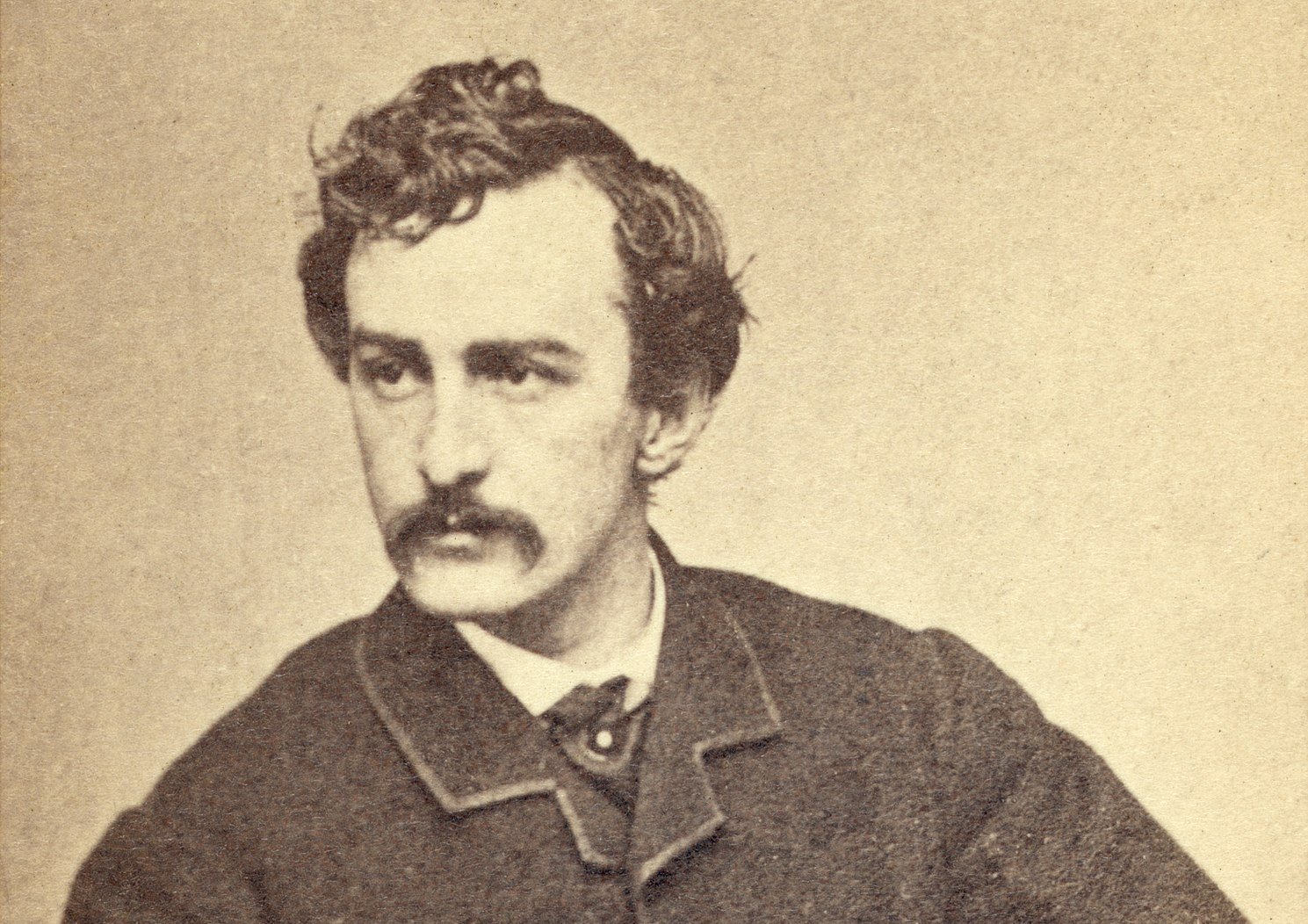 Alexander Gardner, Wikimedia Commons
Alexander Gardner, Wikimedia Commons
24. He Set It On Fire
John Wilkes Booth kept screaming, "I will not be taken alive!" Corbett and his team knew they had to get him out of the barn—and came up with a chilling plan. They set the barn on fire. Corbett positioned himself near a large crack, waiting to catch a glimpse of Booth and see what he was up to.
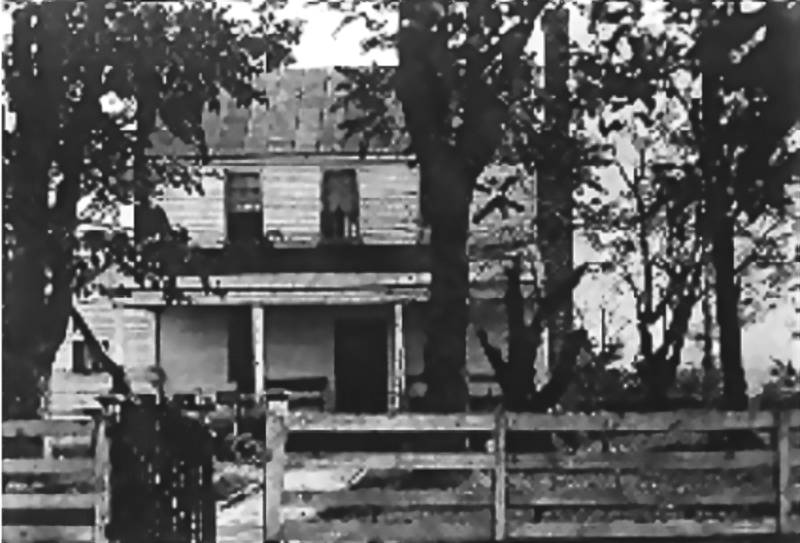 Unknown, owned by NPS, Wikimedia Commons
Unknown, owned by NPS, Wikimedia Commons
25. He Had A Clear View
Although there was a clear order not to hurt Booth, Corbett could see his target through the wall—and what he saw made his blood run cold: Booth had a firearm and he appeared to be aiming it.
There were flames everywhere, and Corbett didn’t have much time to assess the situation properly to make a decision. Therefore, he made a choice that changed the course of history.
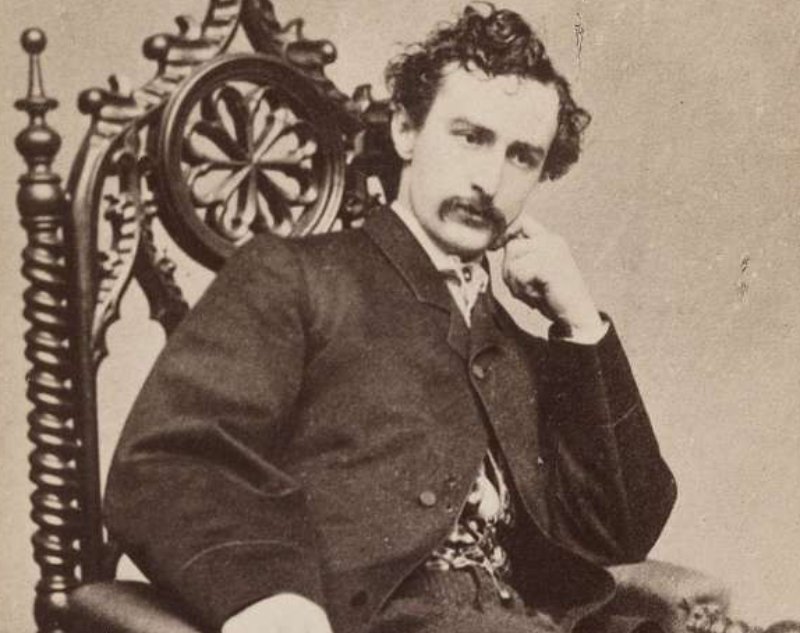 Harvard Theatre Collection, Harvard University, Picryl
Harvard Theatre Collection, Harvard University, Picryl
26. He Made A Hasty Decision
Corbett felt that Booth was about to fire on his men. He saw this as a serious threat, so before consulting any other people, he decided to lock in on Booth and defy orders. Corbett took aim at Booth's head and pulled the trigger.
Due to his hasty course of action, Boston Corbett became known as "the Lincoln Avenger". But this wasn't exactly a moment of heroism. He'd acted against direct orders—and he had no choice but to pay the price.
27. There Was A Cosmic Justice
Everyone around the scene had the same memory of that moment: It was like poetic justice. The appointed team reported that both Lincoln and Booth were injured in the exact same spot. According to the medical reports, even the damages were very similar—Booth had damaged vertebrae and a severed spinal cord, which paralyzed him. Still, he was alive.
28. He Saw Booth Suffering
One witness noted that "[Booth] seemed to suffer extreme pain whenever he was moved...and would several times repeat, 'Kill me'”. Corbett watched Booth screaming in misery. He lost the ability to use his limbs and his breathing became ragged. Then, Corbett heard Booth uttering his last words, "Useless...Useless".
After two hours filled with desperation and agony, Booth finally passed. All the other eyes were on Corbett now.
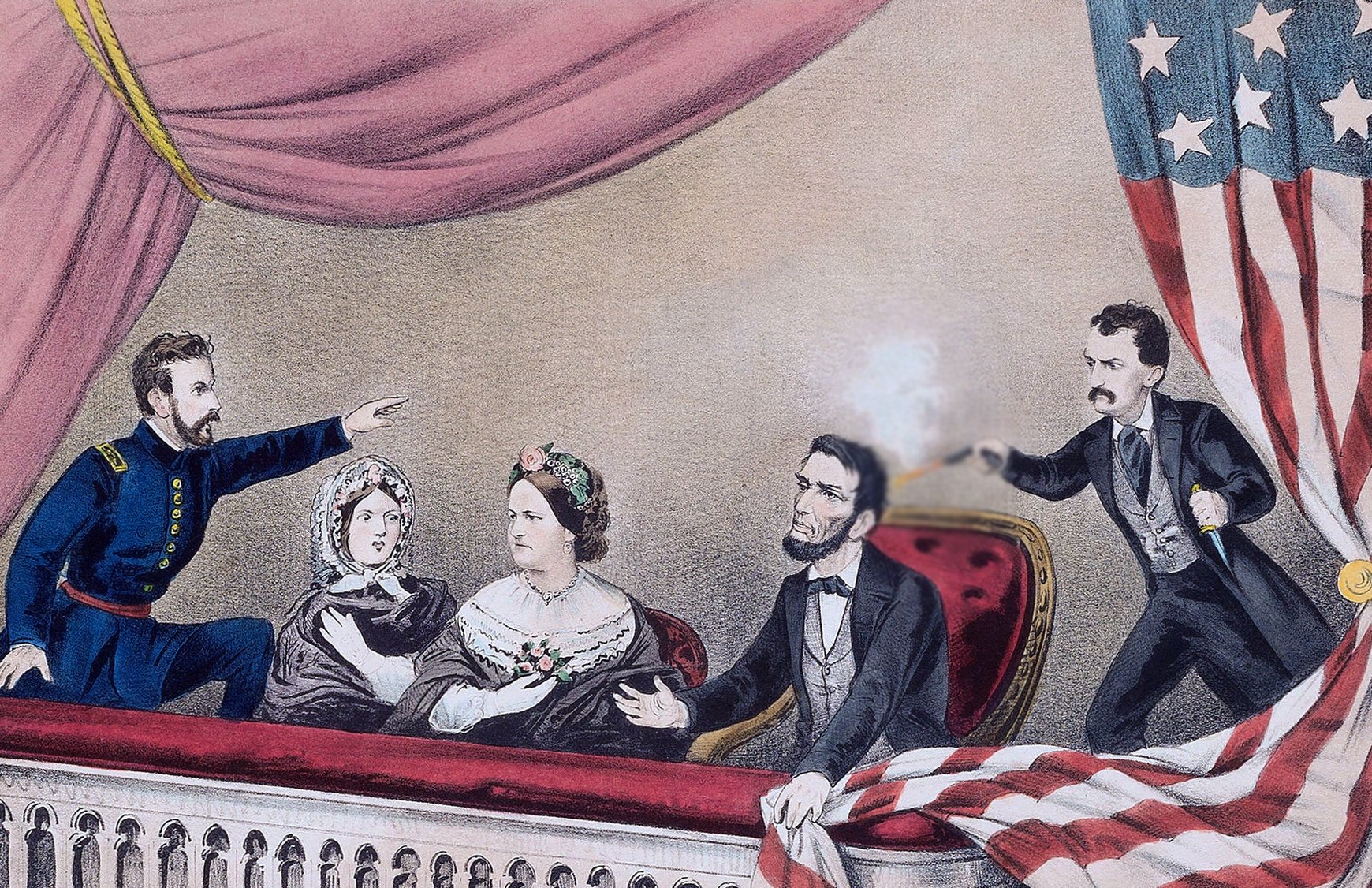 Currier and Ives, ,Wikimedia Commons
Currier and Ives, ,Wikimedia Commons
29. His Answer Was Worrying
The superiors needed to figure out what to do—and more importantly, who to blame. Then, Corbett stepped forward and admitted that he was the guilty party. In the middle of angry commanders and awestruck officers, Corbett stood still. They asked him why he defied orders—and his response was unforgettable.
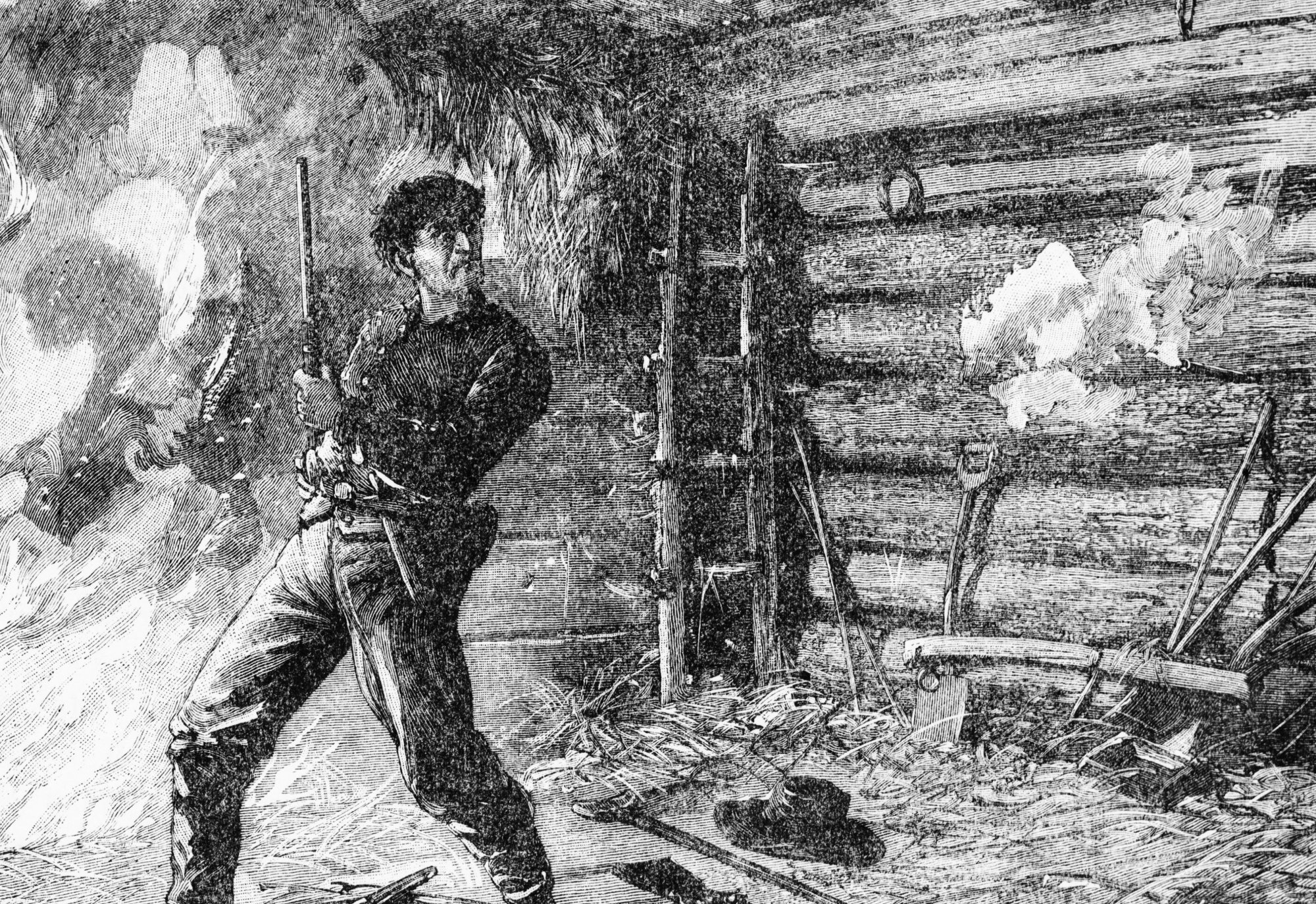 H. Armstrong Roberts/ClassicStock, Getty Images
H. Armstrong Roberts/ClassicStock, Getty Images
30. He Chickened Out
Corbett's reason for pulling the trigger? "Providence directed me". Even though Corbett's declaration was bold and clear, he changed his narrative. He went on to tell the whole story, but he told it in a way that made his actions seem like self-defense. He even said that his intention was only to inflict a disabling wound and his aim slipped.
It was a confusing moment for everyone, but the consensus was to hold Corbett accountable for his actions.
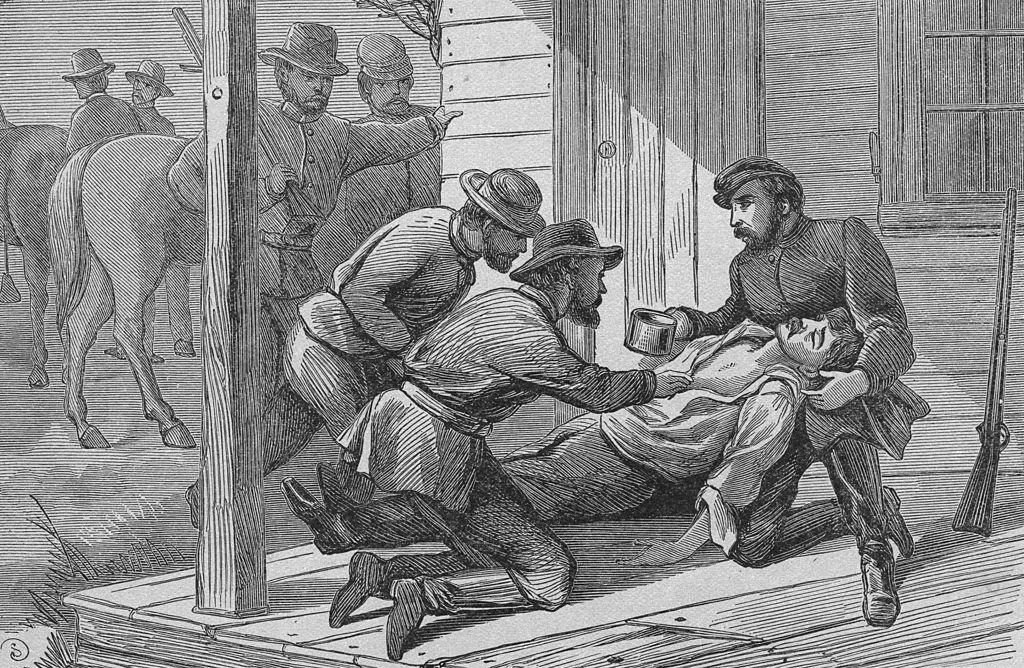 Kean Collection, Getty Images
Kean Collection, Getty Images
31. He Was A “Patriot”
While some criticized Corbett’s actions, others praised him. One of his superiors thought he should be a free man and that he should be honored. He said, "The rebel is dead. The patriot lives; he has spared the country expense, continued excitement, and trouble. Discharge the patriot". Apparently, people outside that group shared similar feelings.
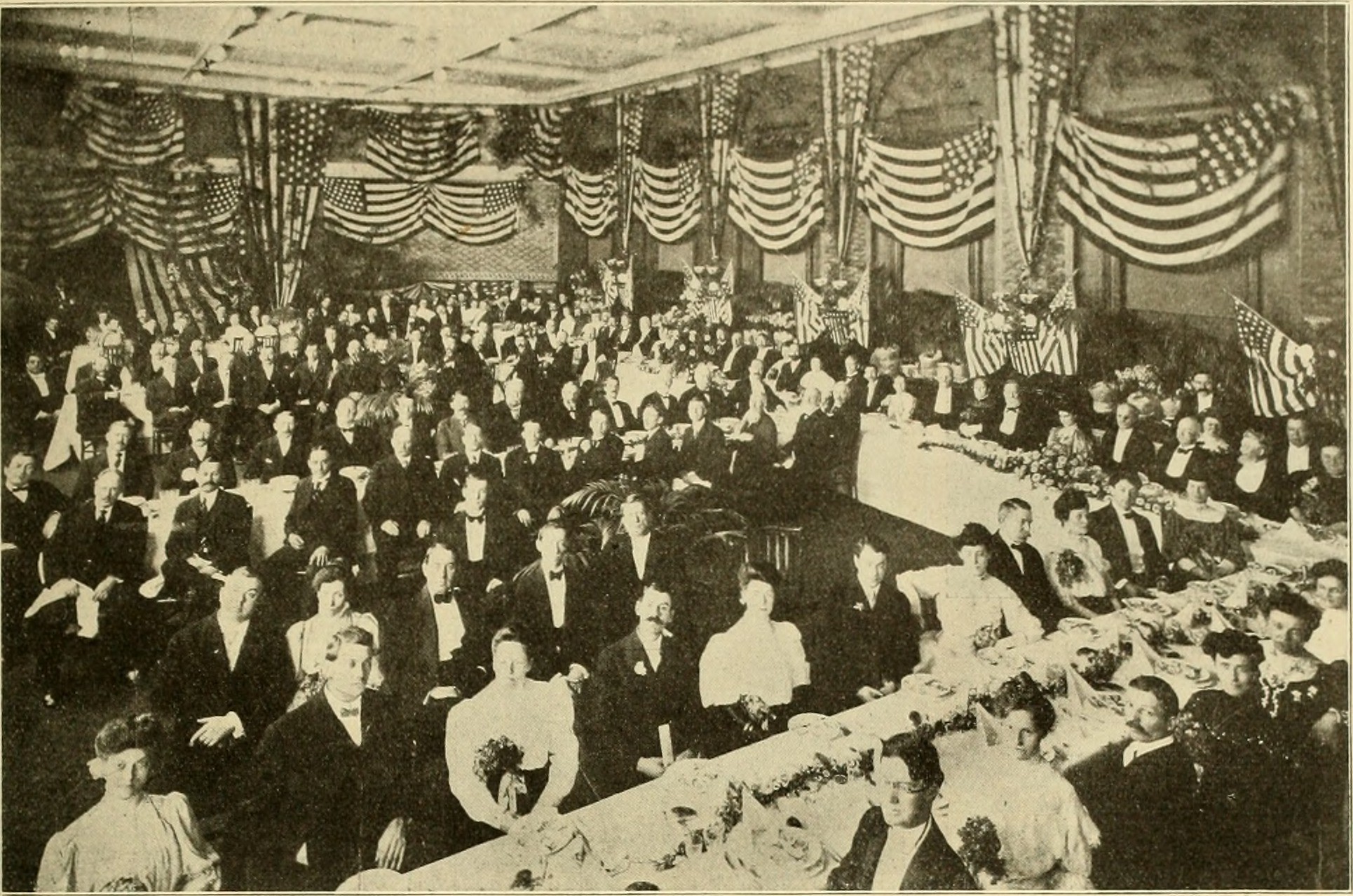 American Florists Company, Flickr
American Florists Company, Flickr
32. People Loved Him
When Corbett left the War Department, he was anxious about the public's perception of him. He soon realized that his worries were moot. People greeted him enthusiastically after he retired his uniform—there were even cheering crowds.
Not only did he enjoy the applause, but there were also other prizes to be had.
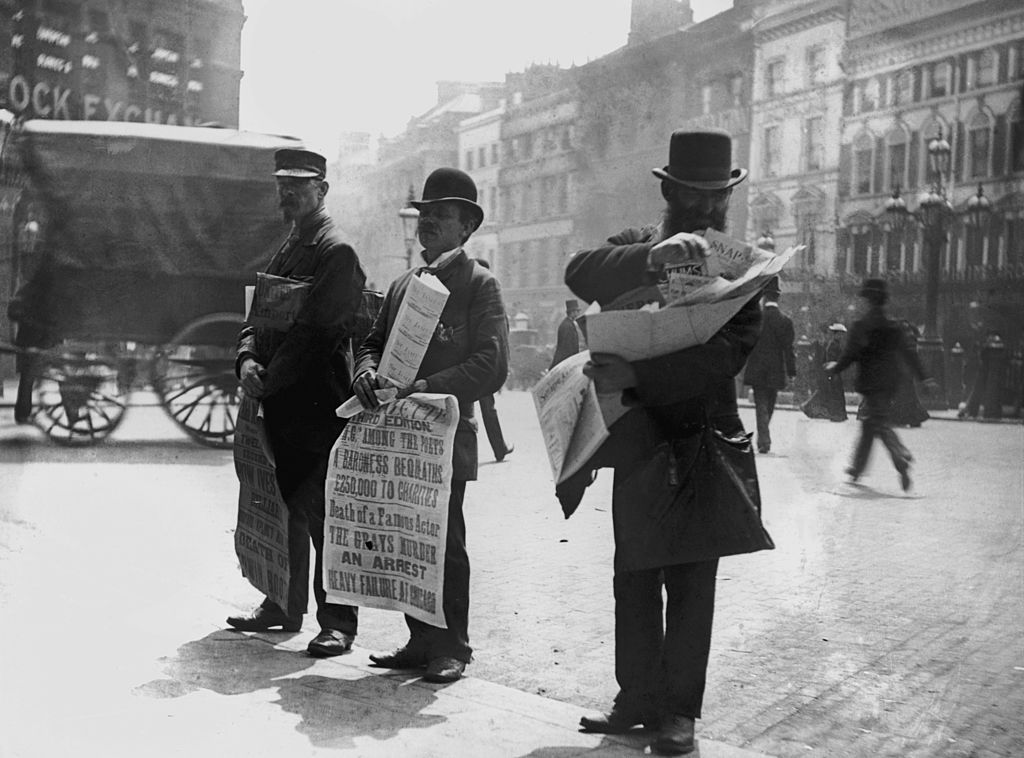 Hulton Archive, Getty Images
Hulton Archive, Getty Images
33. He Won A Very Unique Prize
There was a reward on Booth—but it was for the person who caught Booth alive. So, Corbett had a small share of that money—$1,653.85 of $50,000. Nevertheless, his real reward was his horse. He asked to keep his horse, stating that “He isn’t very valuable, but I’ve got so attached to him that I would like to take him home”.
But this wasn't the end of his story.
 Alvesgaspar, CC BY-SA 4.0, Wikimedia Commons
Alvesgaspar, CC BY-SA 4.0, Wikimedia Commons
34. He Toured
In the blink of an eye, Boston Corbett became an unlikely hero. People wanted to hear his heroic tale, they wanted their kids to know the story, and they even wanted an autograph from him. Corbett happily agreed to be photographed and went on a tour. He was a celebrity, and he loved it.
But like everything in life, the buzz around him eventually faded away.
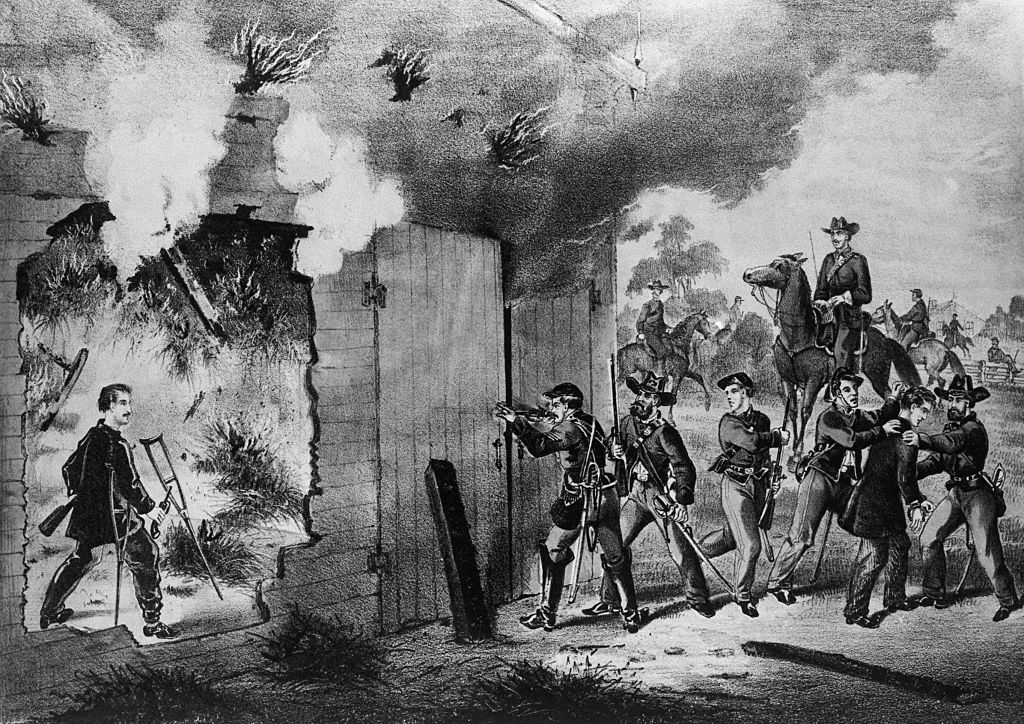 Historical, Getty Images
Historical, Getty Images
35. He Had A Hard Time Adjusting To Normal Life
As of 1870, Corbett was a normal person trying to live a normal life in New Jersey. He returned to his old occupation as a hatter—but keeping a paying job was a struggle. In all the jobs he found, he often stopped working to pray. Unfortunately, when people saw the crazy religious fanatic underneath his heroic reputation, no one wanted to give him a job.
Desperate, he decided to use his past to his advantage.
36. He Used His Title
Penniless, Corbett needed a way to earn quick cash. He thought his title as the “Lincoln Avenger” was short-lived, so he revived it. Corbett began giving lectures and speeches in exchange for money. He visited Sunday schools, women’s groups, and tent meetings.
Initially, it was a home run in terms of earning money—but his stroke of luck couldn't last forever.
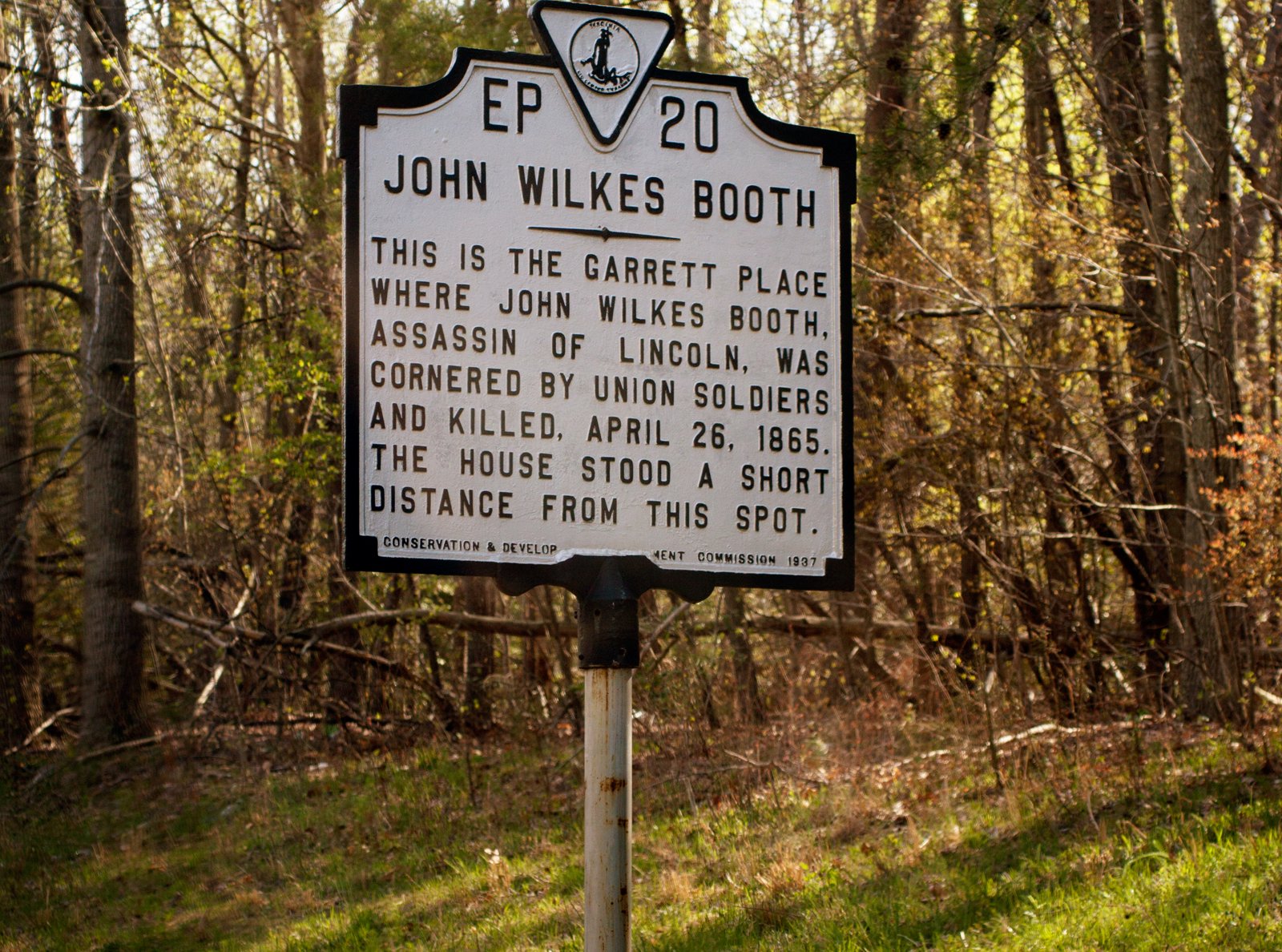 James Prime, CC BY-SA 3.0 , Wikimedia Commons
James Prime, CC BY-SA 3.0 , Wikimedia Commons
37. They Didn’t Want Him Back
Boston Corbett’s career as a lecturer ended rather abruptly. After giving his incoherent speeches and bizarre lectures—where he used lantern slides—the people didn’t want him back. Reportedly, his erratic behavior disturbed them. Corbett had a feeling that people didn’t like him—but he had even farther to fall.
 Richard Ash, CC BY-SA 2.0 , Wikimedia Commons
Richard Ash, CC BY-SA 2.0 , Wikimedia Commons
38. He Believed Them
Hateful rumors about Corbett ran rampant. Reportedly, he was “insulted wherever he appears in public... [H]e is hated by one-half of the American people and despised by the other half for the only crime ever yet alleged against him—that he robbed the haughty officers of a play where they would all have been star actors”.
Corbett believed every negative thing he heard—the results were disastrous.
39. He Snapped
As you all know by now, Corbett was already a hot-tempered person. However, he was especially sensitive about the Booth situation. On one occasion, at a reunion in Ohio, Corbett got into a heated argument with some men who teased him about the delicate subject. The events that unfolded were pure chaos.
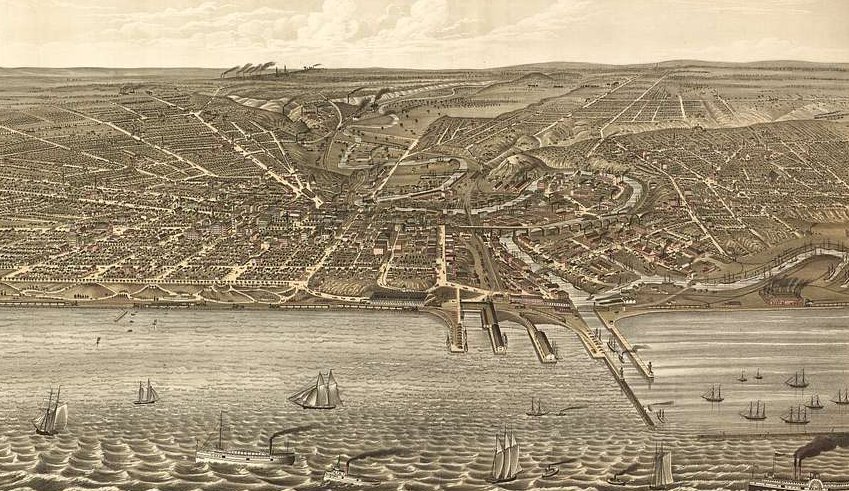 Ruger, A. Stoner, J. J. Shober & Carqueville, Library of Congress, Picryl
Ruger, A. Stoner, J. J. Shober & Carqueville, Library of Congress, Picryl
40. He Threatened People
The men kept asking Corbett whether he really was the “Lincoln Avenger” and this infuriated him. Out of words, he drew a weapon to retaliate—and promptly got thrown out of the reunion. It was getting harder for him to live among these people, so Corbett pivoted—and did something radical.
 Gilles Michel Louis Moutier-Le Page, CC0, Wikimedia Commons
Gilles Michel Louis Moutier-Le Page, CC0, Wikimedia Commons
41. He Packed His Bags
Sick of all the drama and the paranoia, Corbett packed his bags and hit the road. In 1878, Corbett headed west. During his journey, Corbett stayed with a fellow officer, who was deeply worried about him. The officer noted, “Wherever [Corbett] goes he says Nemesis pursues him, and the troubled spirits of revenge will not let him rest”.
That’s why Corbett went as far as he could.
42. He Lived In Isolation
Finally, Corbett found a place to settle. His new home was in Cloud County, Kansas—1,500 miles from home. He built a tiny house—far, far away from civilization. He finally found peace, except when he heard people approaching. Suspicious of everybody at this point, he used his pistol to scare everyone off if they approached his house, even children.
 Kolbretman, CC BY-SA 4.0 , Wikimedia Commons
Kolbretman, CC BY-SA 4.0 , Wikimedia Commons
43. They Pitied Him
Shortly after, news about Corbett and his unhealthy lifestyle traveled—all the way to the veterans’ organization. When they heard about Corbett scaring off people, they took pity on him and offered him a job to keep him busy. They knew that he wouldn’t be able to hold a job, but he still agreed and began working as an assistant doorkeeper. Not for long, though.
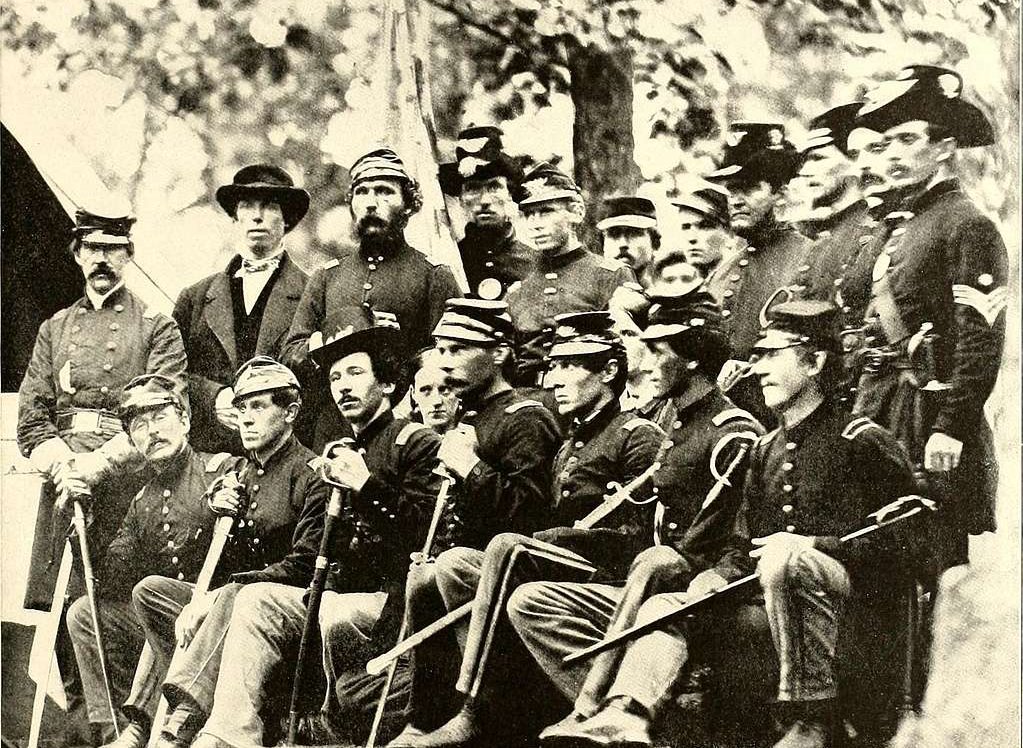 Miller, Francis Trevelyan, 1877-1959 Lanier, Robert S. (Robert Sampson), Picryl
Miller, Francis Trevelyan, 1877-1959 Lanier, Robert S. (Robert Sampson), Picryl
44. He Went Crazy
Unfortunately, it didn’t take long for Corbett’s erratic behaviors to sabotage him. He thought that officers were discriminating against him, so he began chasing them with a revolver. Nobody was hurt, yet Corbett had officially blown his last chance at a normal life. The next day, a judge confirmed what everyone already knew: Boston Corbett was insane. His awful fate? The Topeka Asylum.
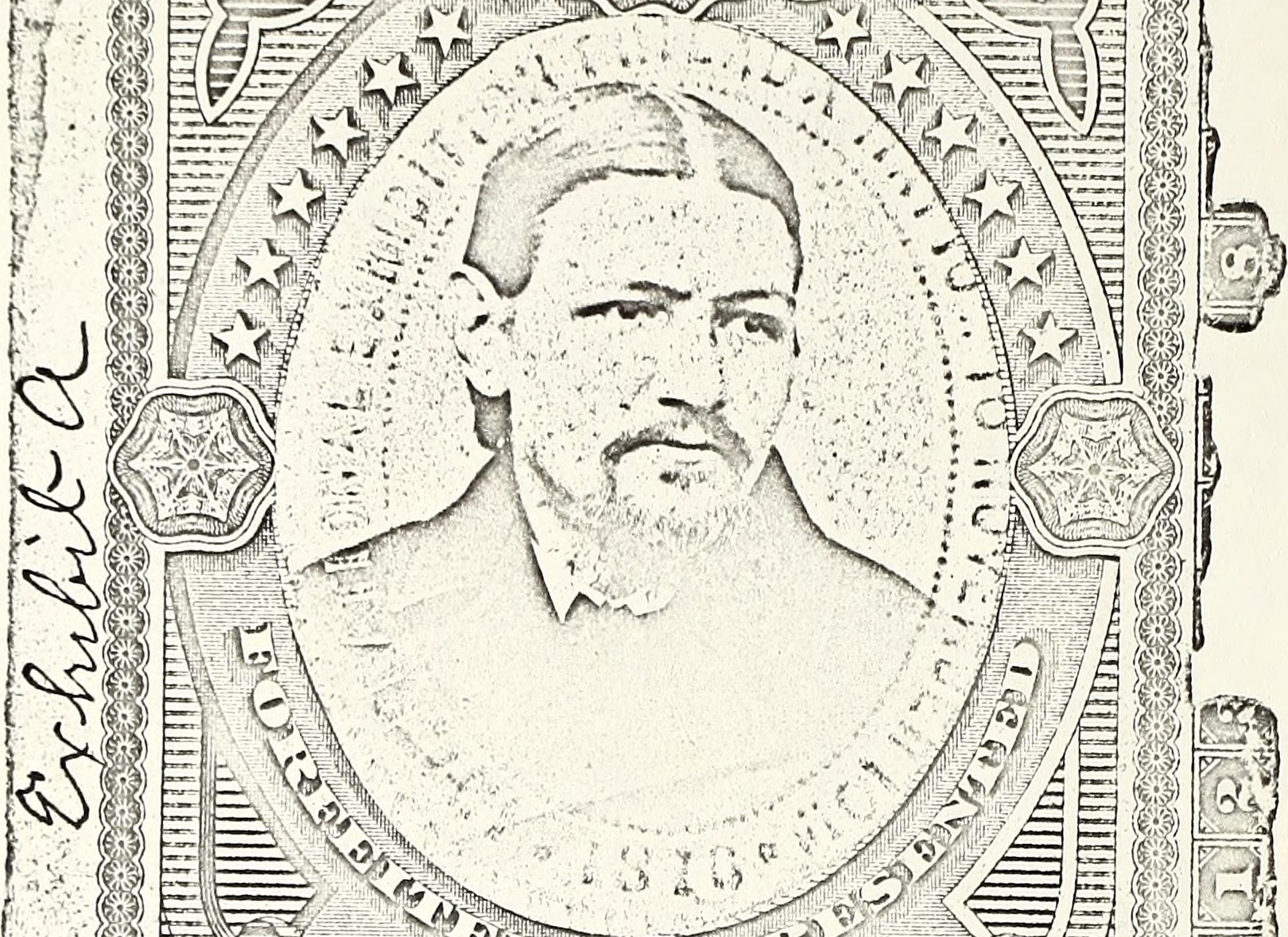 Internet Archive Book Images, Wikimedia Commons
Internet Archive Book Images, Wikimedia Commons
45. He Escaped Again
This wasn’t the first time Corbett found himself in a place he did not want to be. He let history repeat itself and escaped in the most dramatic way—on horseback. Reportedly, he stayed with an old acquaintance, Richard Thatcher, for a short while—and told him that he was off to Mexico.
What happened after that was a mystery.
46. He Remained An Enigma
Apparently, Corbett never went to Mexico—indeed, no one knew where he went. Some believed that he settled in a cabin in Minnesota. There was another rumor about him perishing in the Great Hinckley Fire, because there was a record of a “Thomas Corbett” missing during that time.
Nobody knew the truth, but even though he'd disappeared, Corbett proved that he could still cause a ruckus.
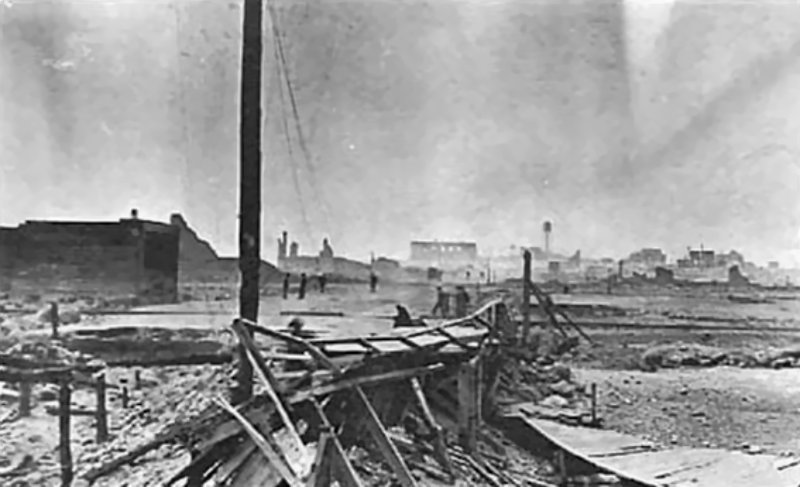 Minnesota Historical Society, Wikimedia Commons
Minnesota Historical Society, Wikimedia Commons
47. He Had Imposters
In the following years, some men claimed to be Boston Corbett. One of them was seen in Oklahoma, filing an application, while there was another man who claimed to be Corbett in Dallas, as well. Nevertheless, both men in Oklahoma and Dallas turned out to be imposters and ended up behind bars.
Boston Corbett's final chapter remained an enigma—and you know what? He probably preferred that.
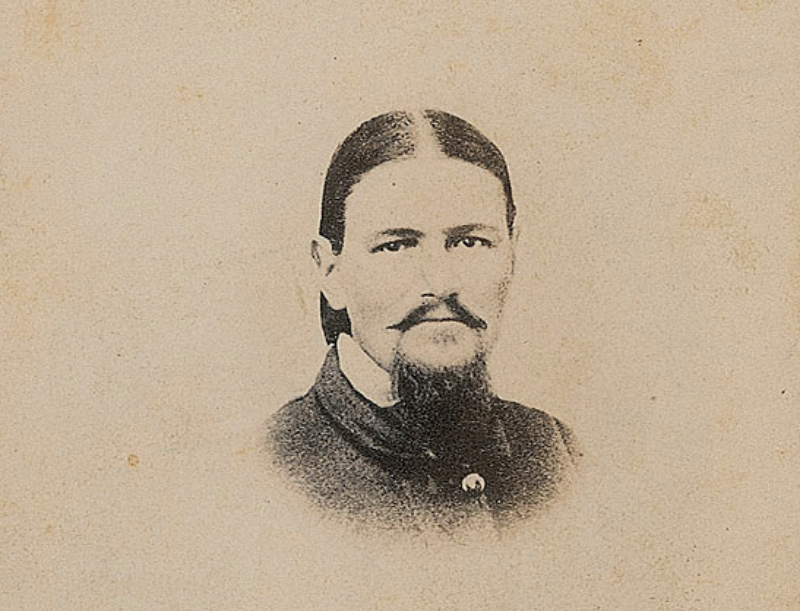 Philadelphia Photographic Co., Wikimedia Commons
Philadelphia Photographic Co., Wikimedia Commons
48. He Was Paranoid
Back in 1874, Corbett's paranoia had reached an all-time high. He had numerous conspiracy theories. Most shockingly? He believed John Wilkes Booth was still alive and that his sympathizers were tracking Corbett down. He was incredibly fearful. Maybe he was imagining all this...but maybe he was right.
Or so one chilling letter would have him believe.
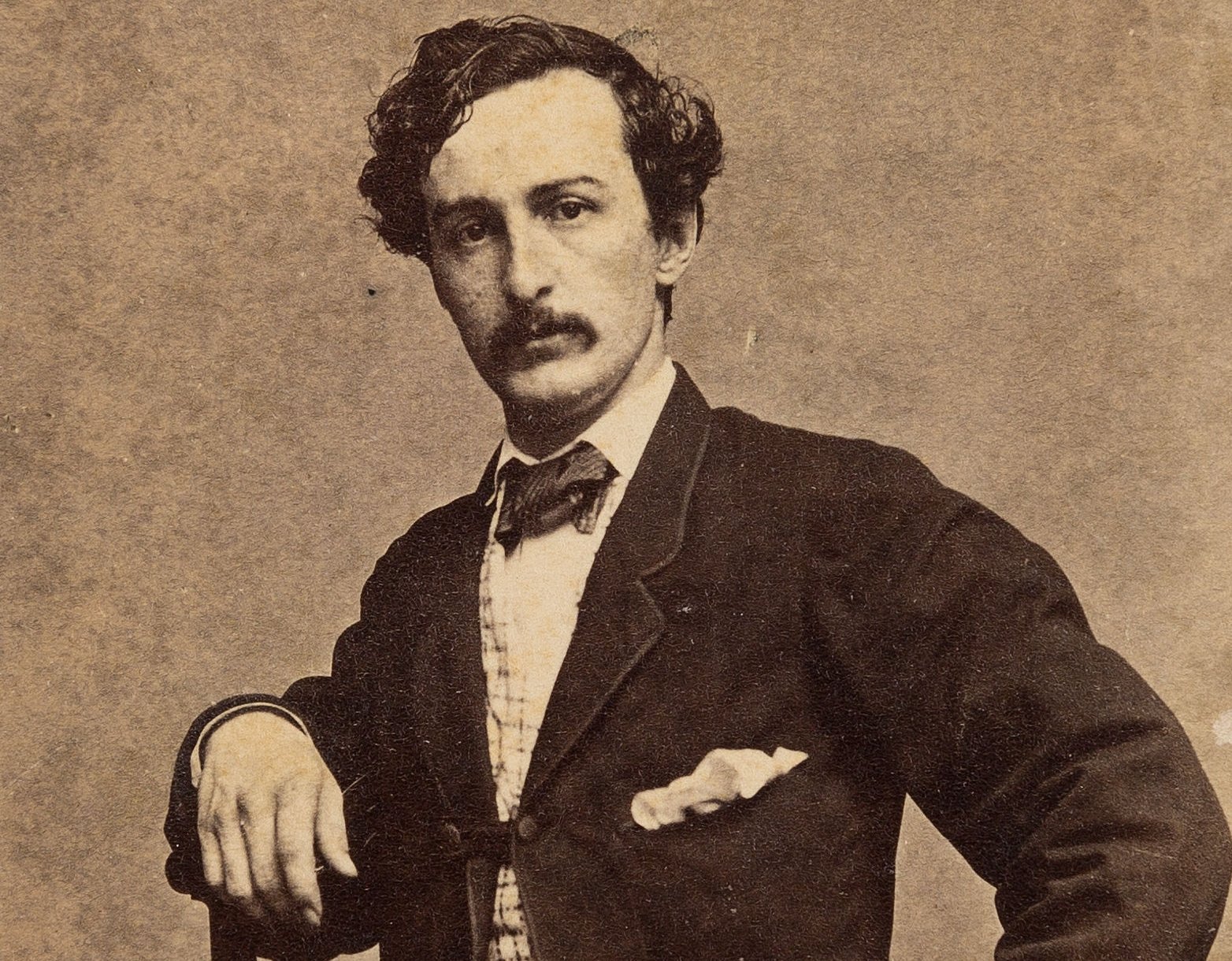 Black & Case of Boston back mark, Wikimedia Commons
Black & Case of Boston back mark, Wikimedia Commons
49. He Had Haters Too
Reportedly, one of Boston Corbett’s friends opened up about the entire situation. He noted that Corbett was actually being followed and that he received “threatening letters every day”. Corbett’s friend even shared one of the letters' contents—it read, “HELL, September 1, 1874. —Boston Corbett, Nemesis is on your path. J. Wilkes Booth".
But that wasn't all.



